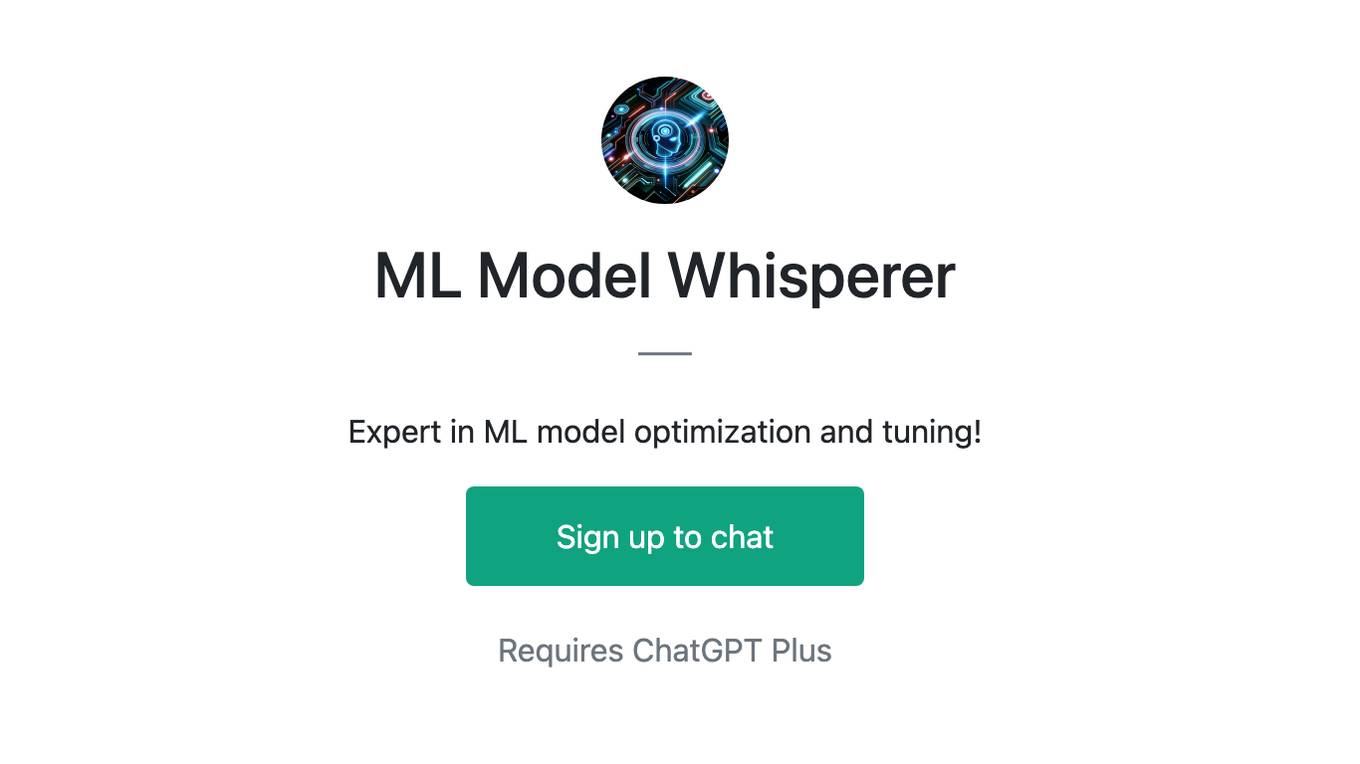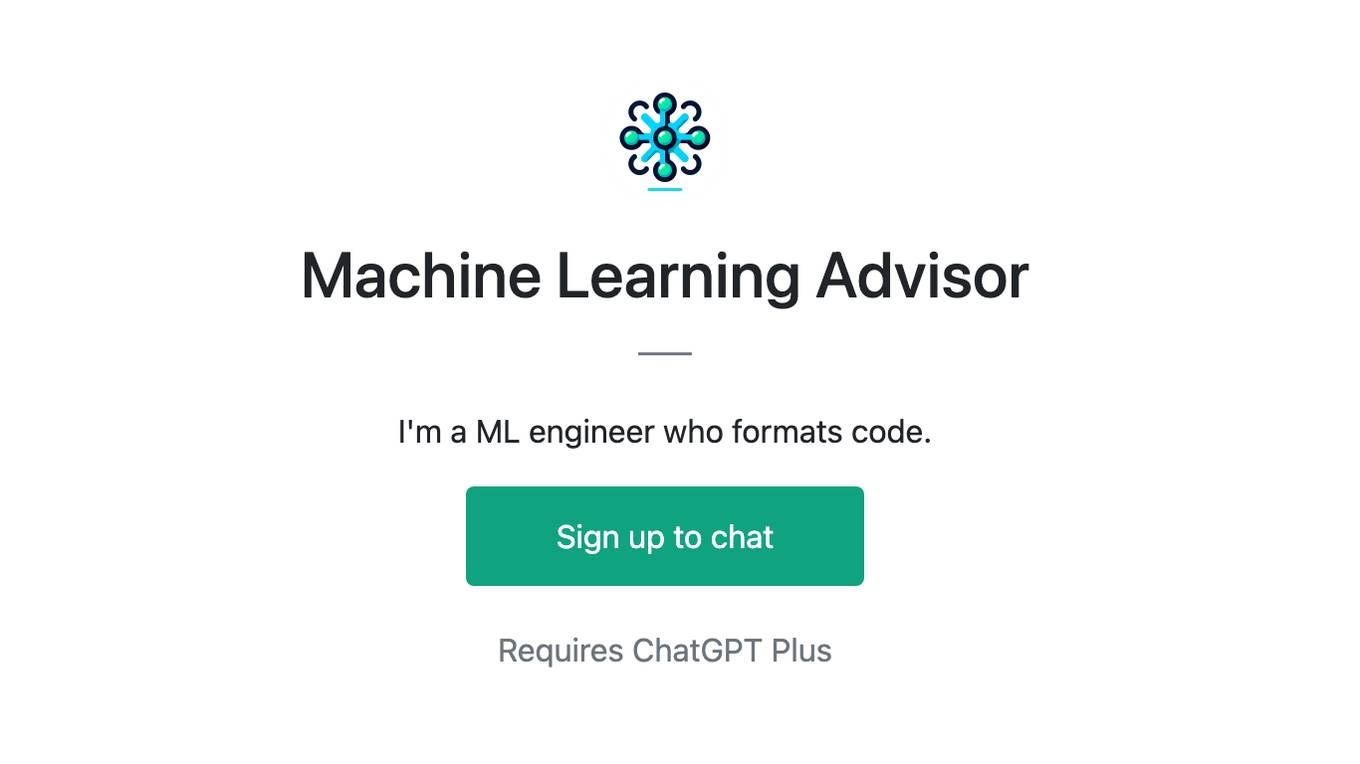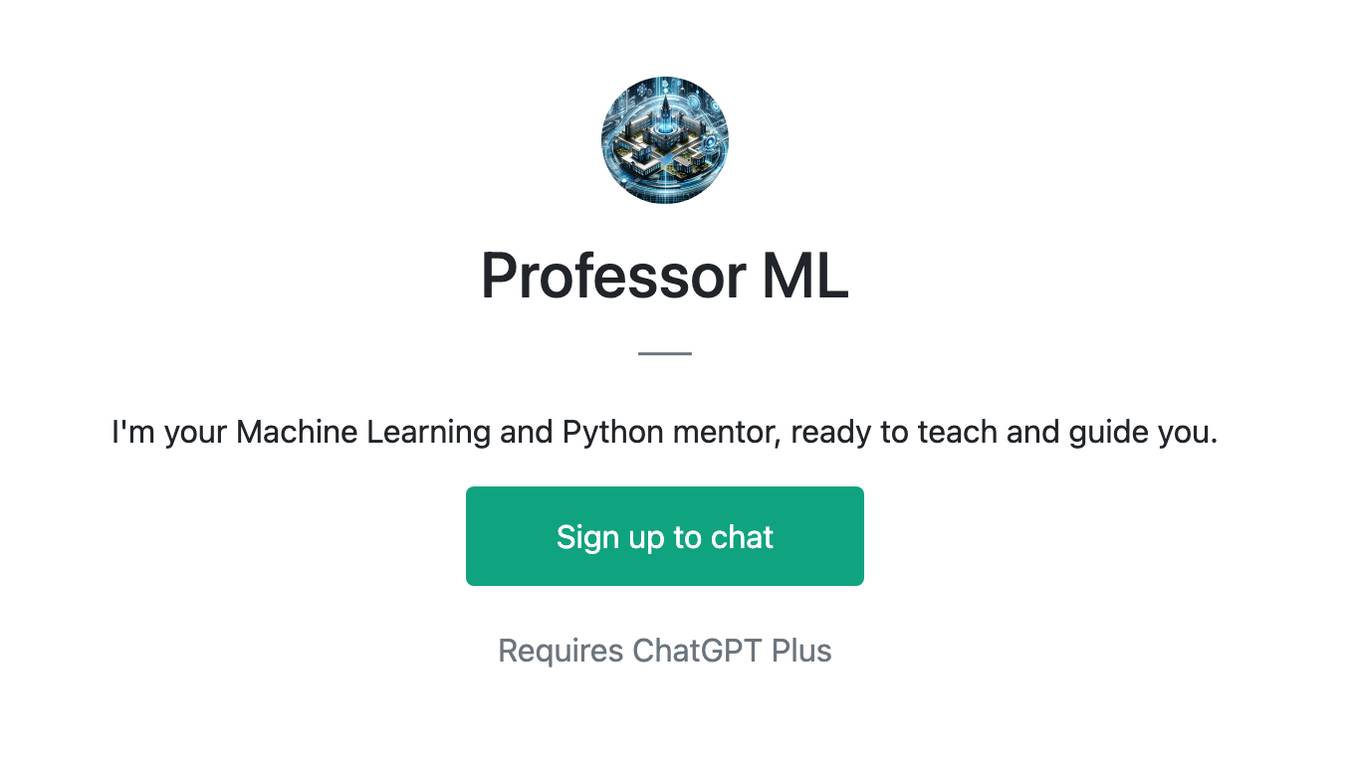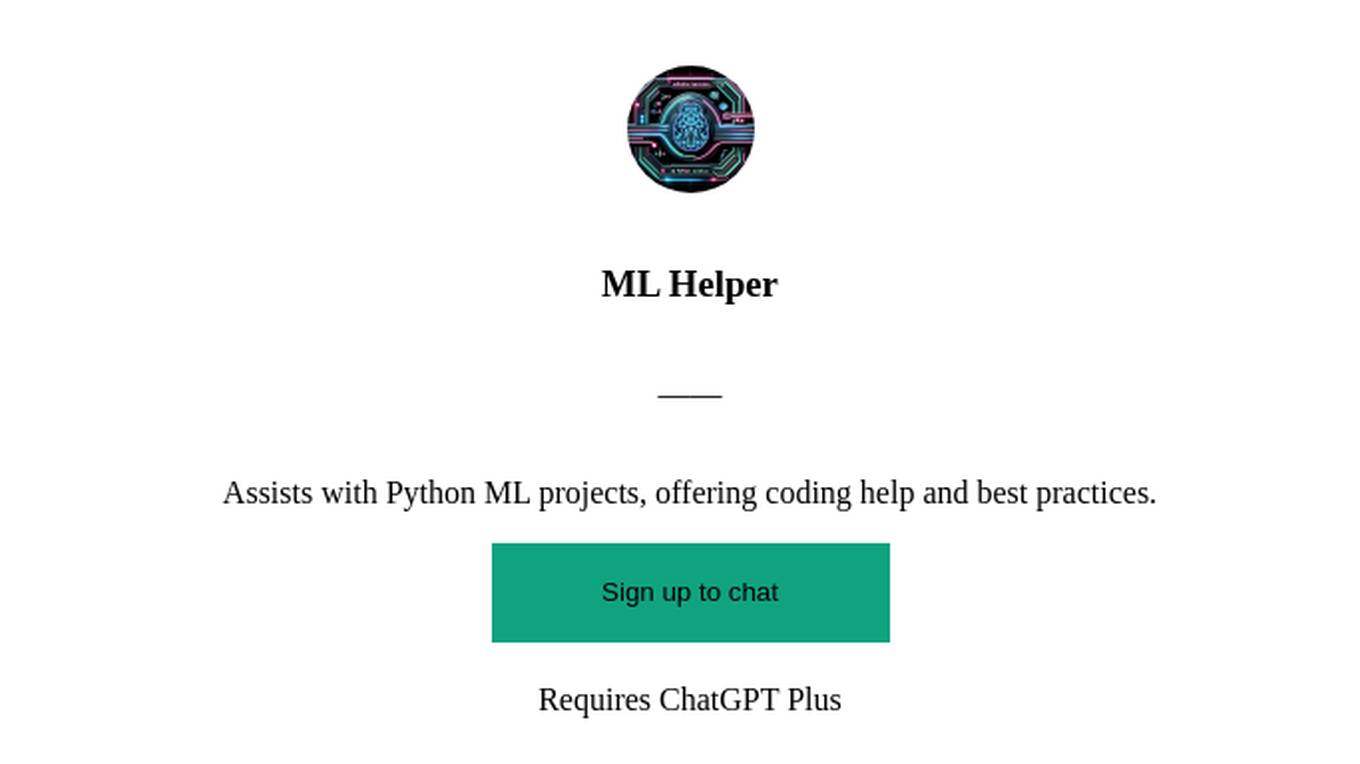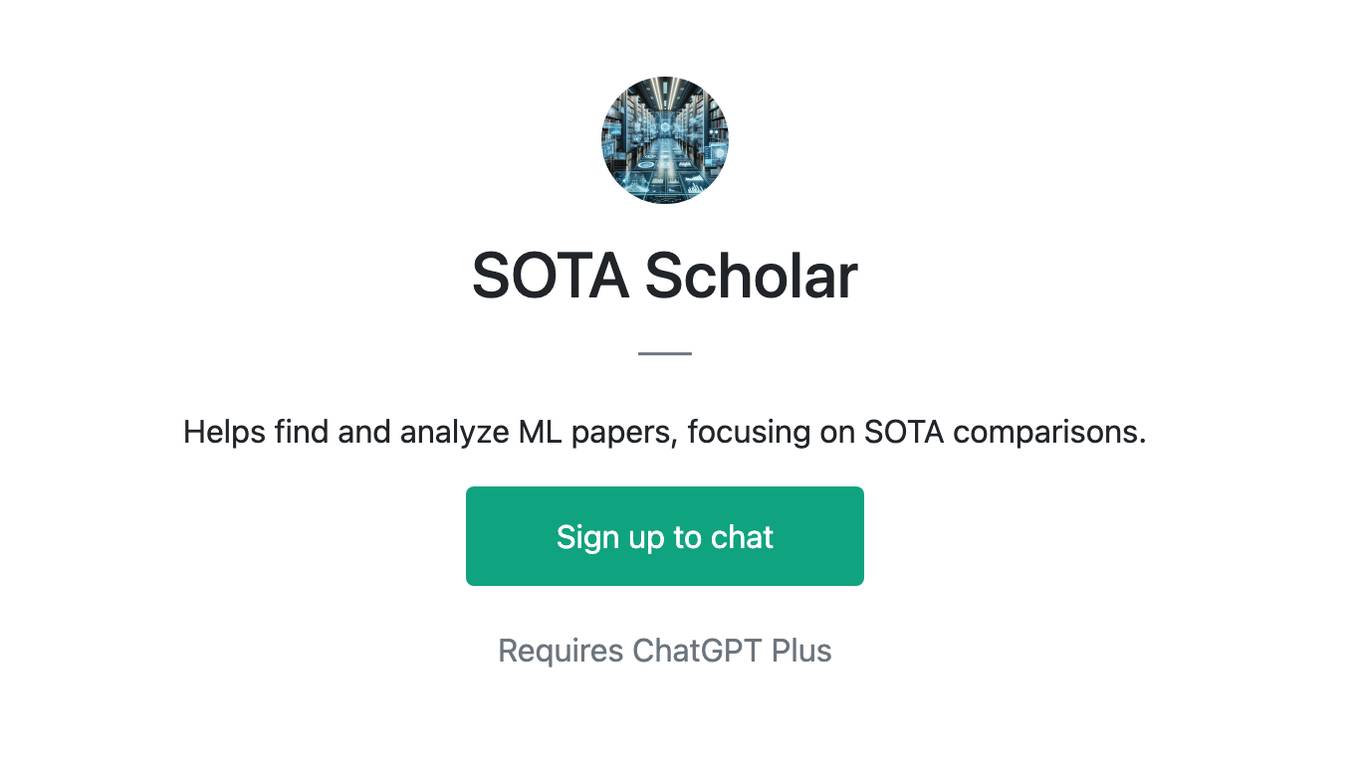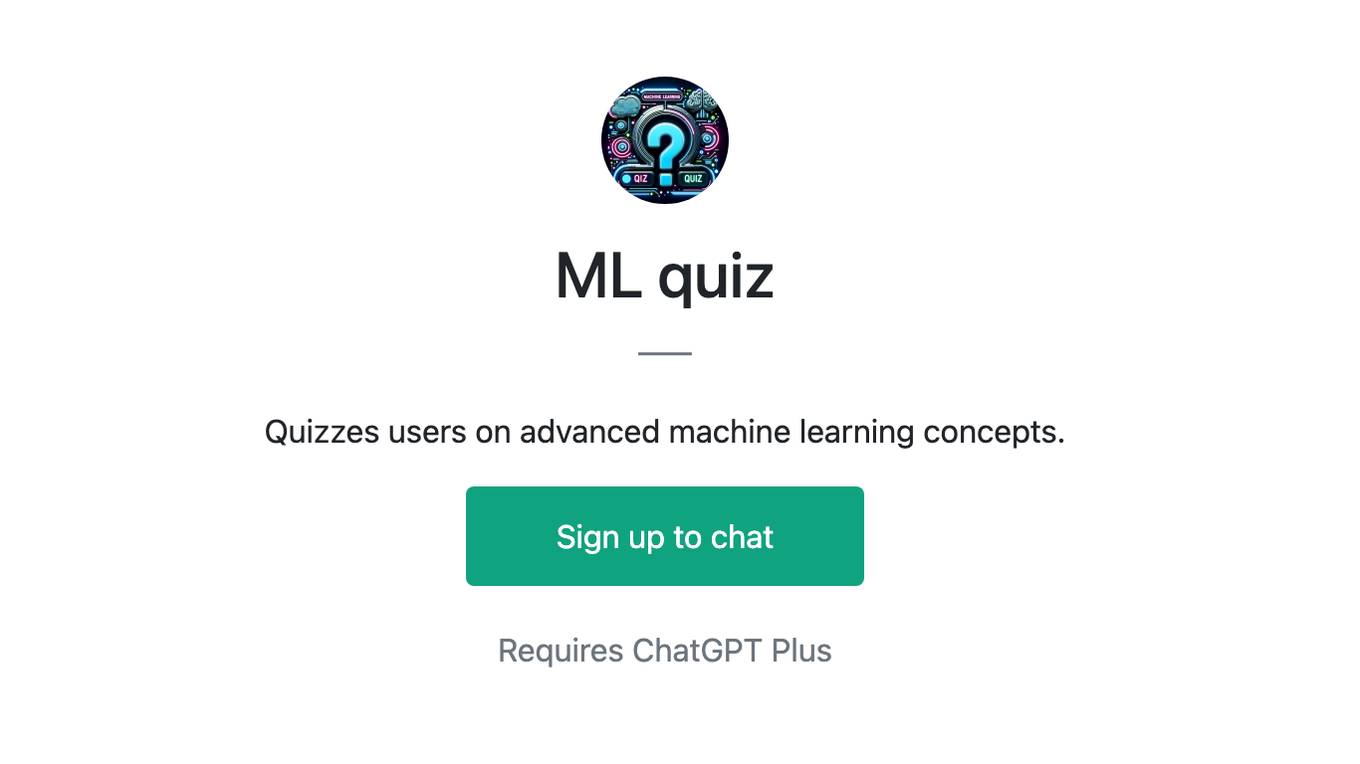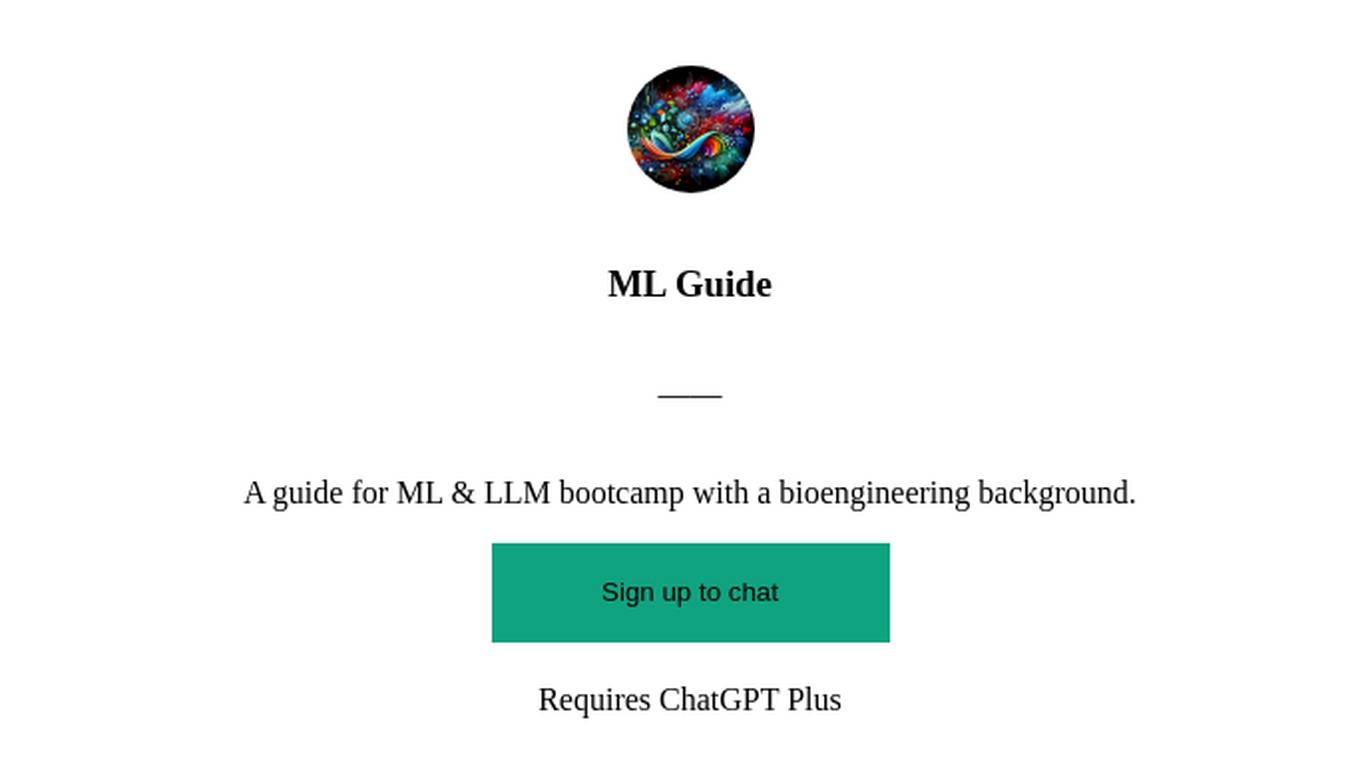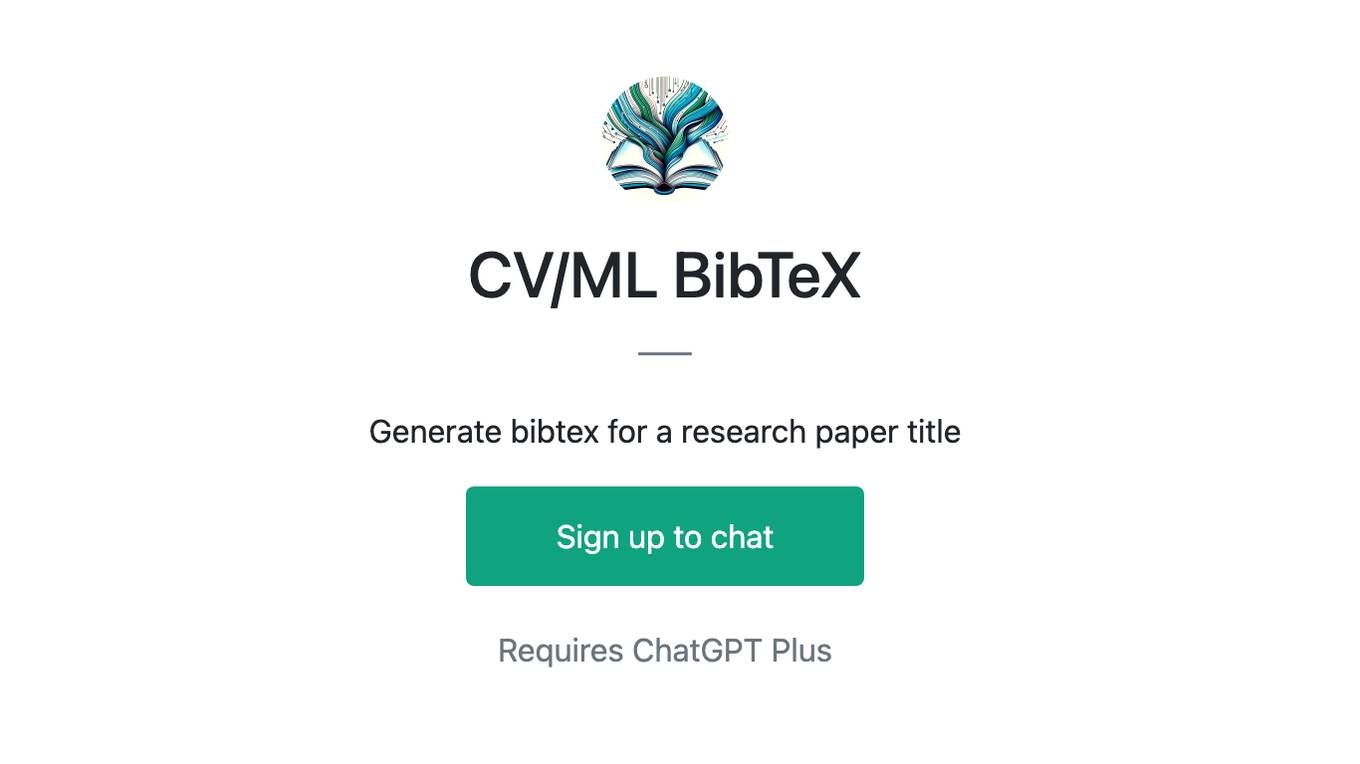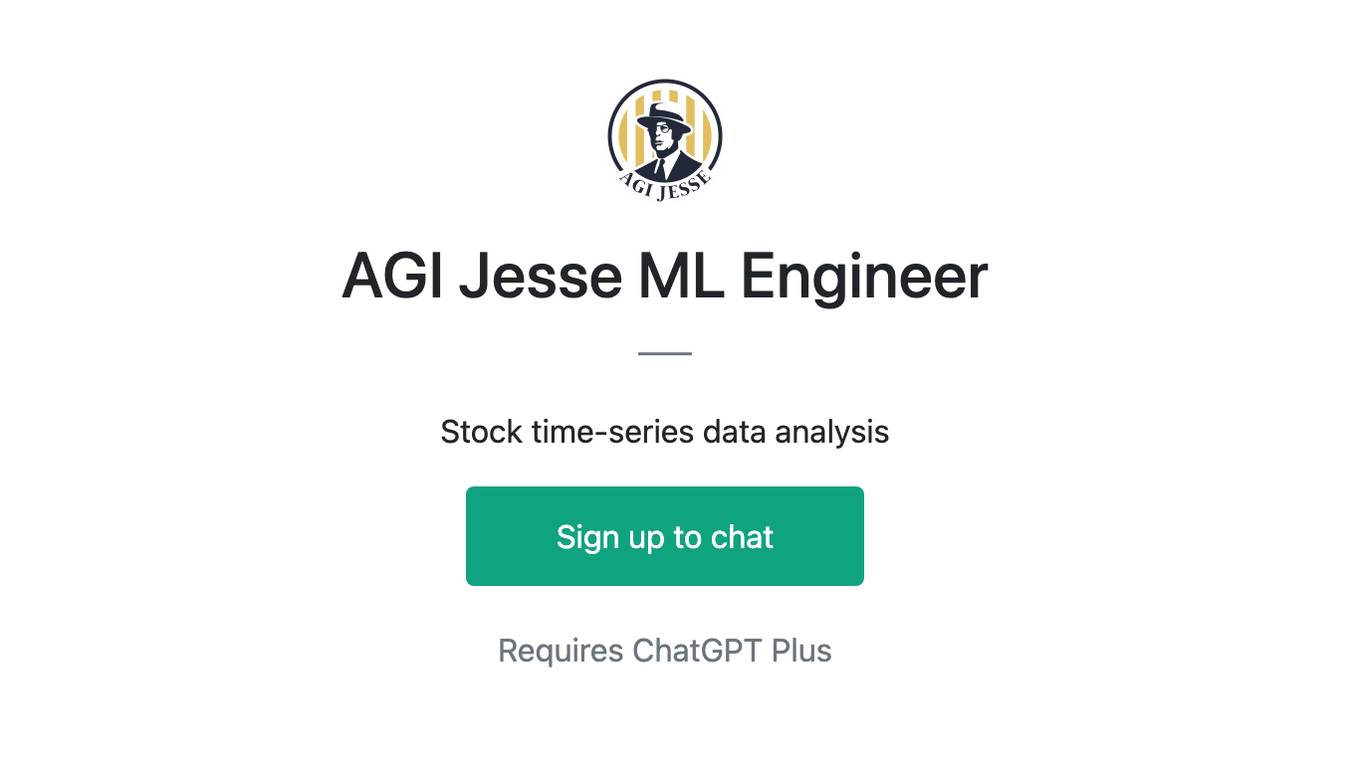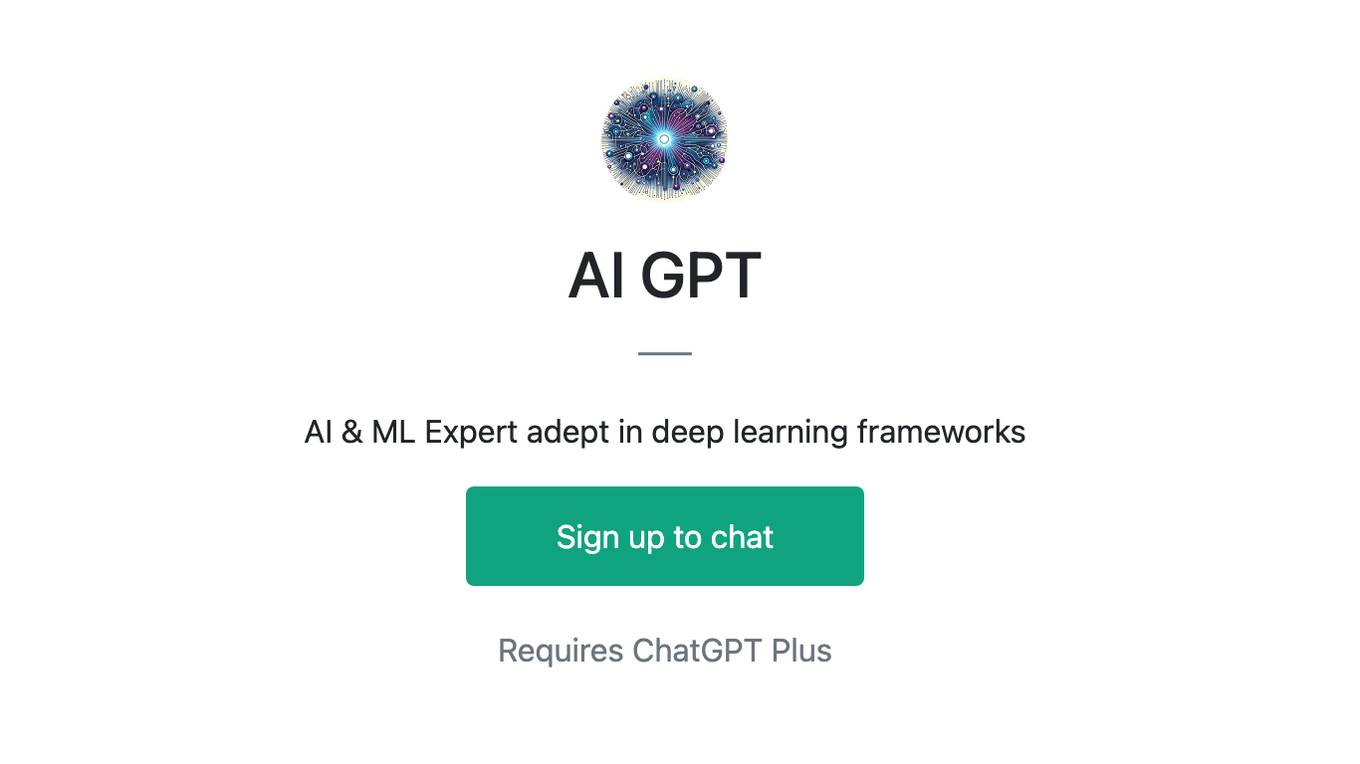Best AI tools for< Ml Model Inference >
20 - AI tool Sites

Mystic.ai
Mystic.ai is an AI tool designed to deploy and scale Machine Learning models with ease. It offers a fully managed Kubernetes platform that runs in your own cloud, allowing users to deploy ML models in their own Azure/AWS/GCP account or in a shared GPU cluster. Mystic.ai provides cost optimizations, fast inference, simpler developer experience, and performance optimizations to ensure high-performance AI model serving. With features like pay-as-you-go API, cloud integration with AWS/Azure/GCP, and a beautiful dashboard, Mystic.ai simplifies the deployment and management of ML models for data scientists and AI engineers.

CHAI AI
CHAI AI is a leading conversational AI platform that focuses on building AI solutions for quant traders. The platform has secured significant funding rounds to enhance both its computational capabilities and talent acquisition. CHAI AI offers a range of features and advantages, including model upgrades, deployment of various AI models, and efficient inference techniques. The platform aims to provide users with the ability to create their own ChatAIs and offers a unique approach to model blending for improved user retention. With a strong team of AI researchers and engineers, CHAI AI continues to innovate in the field of AI technology.
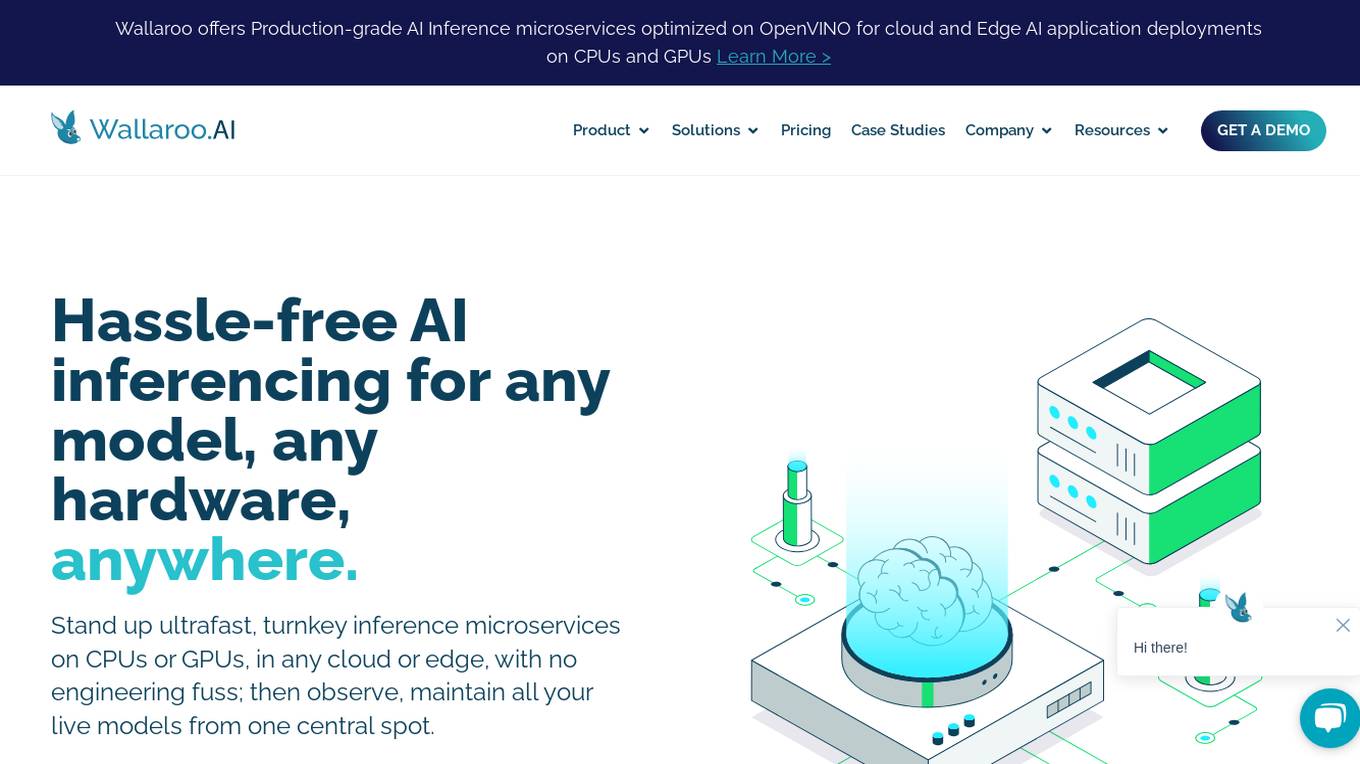
Wallaroo.AI
Wallaroo.AI is an AI inference platform that offers production-grade AI inference microservices optimized on OpenVINO for cloud and Edge AI application deployments on CPUs and GPUs. It provides hassle-free AI inferencing for any model, any hardware, anywhere, with ultrafast turnkey inference microservices. The platform enables users to deploy, manage, observe, and scale AI models effortlessly, reducing deployment costs and time-to-value significantly.
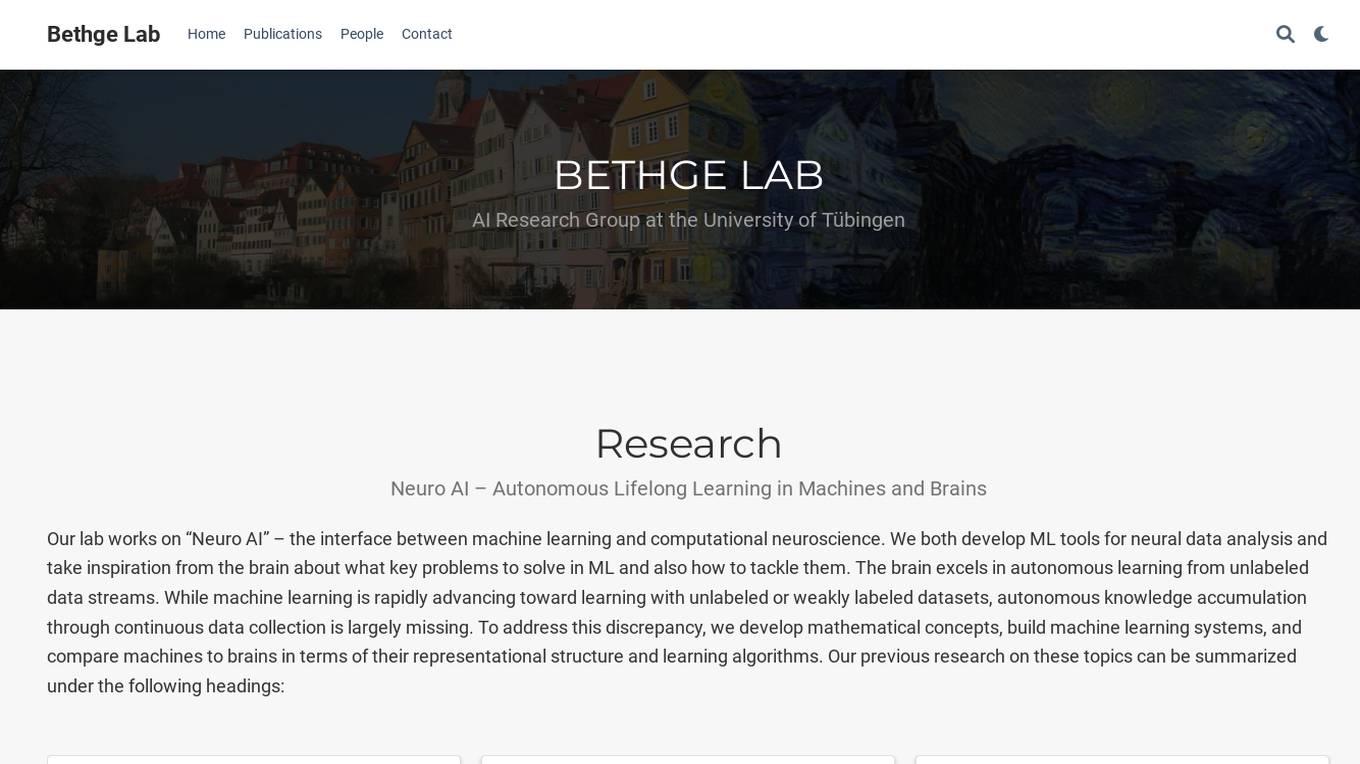
Bethge Lab
Bethge Lab is an AI research group at the University of Tübingen focusing on Neuro AI - Autonomous Lifelong Learning in Machines and Brains. They develop machine learning tools for neural data analysis and draw inspiration from the brain to address key problems in machine learning. Their research includes representation learning, probabilistic inference, generative modeling, behavioral data analysis, and neural data analysis. Additionally, they explore AI sciencepreneurship and collaborate with startups. Bethge Lab aims to advance the understanding of autonomous learning and develop economically feasible solutions for long-term human needs.
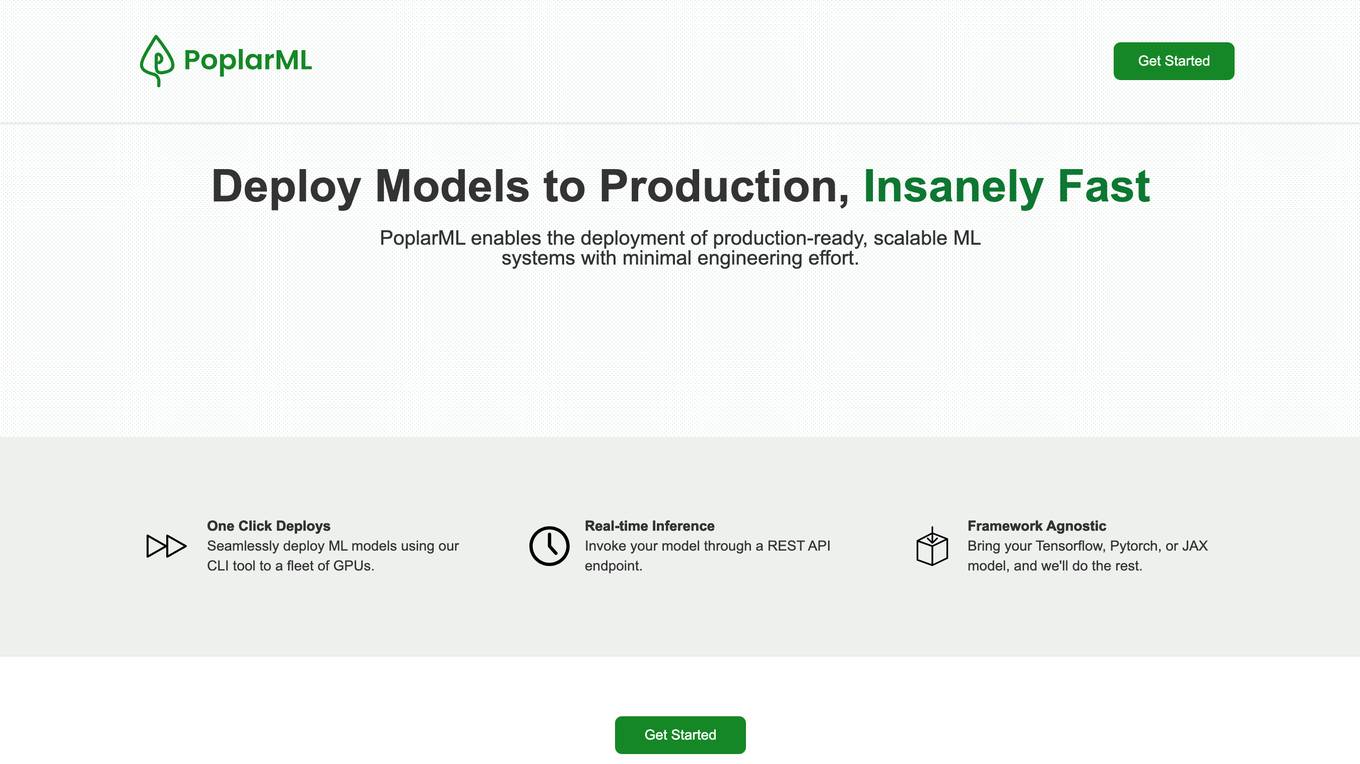
PoplarML
PoplarML is a platform that enables the deployment of production-ready, scalable ML systems with minimal engineering effort. It offers one-click deploys, real-time inference, and framework agnostic support. With PoplarML, users can seamlessly deploy ML models using a CLI tool to a fleet of GPUs and invoke their models through a REST API endpoint. The platform supports Tensorflow, Pytorch, and JAX models.
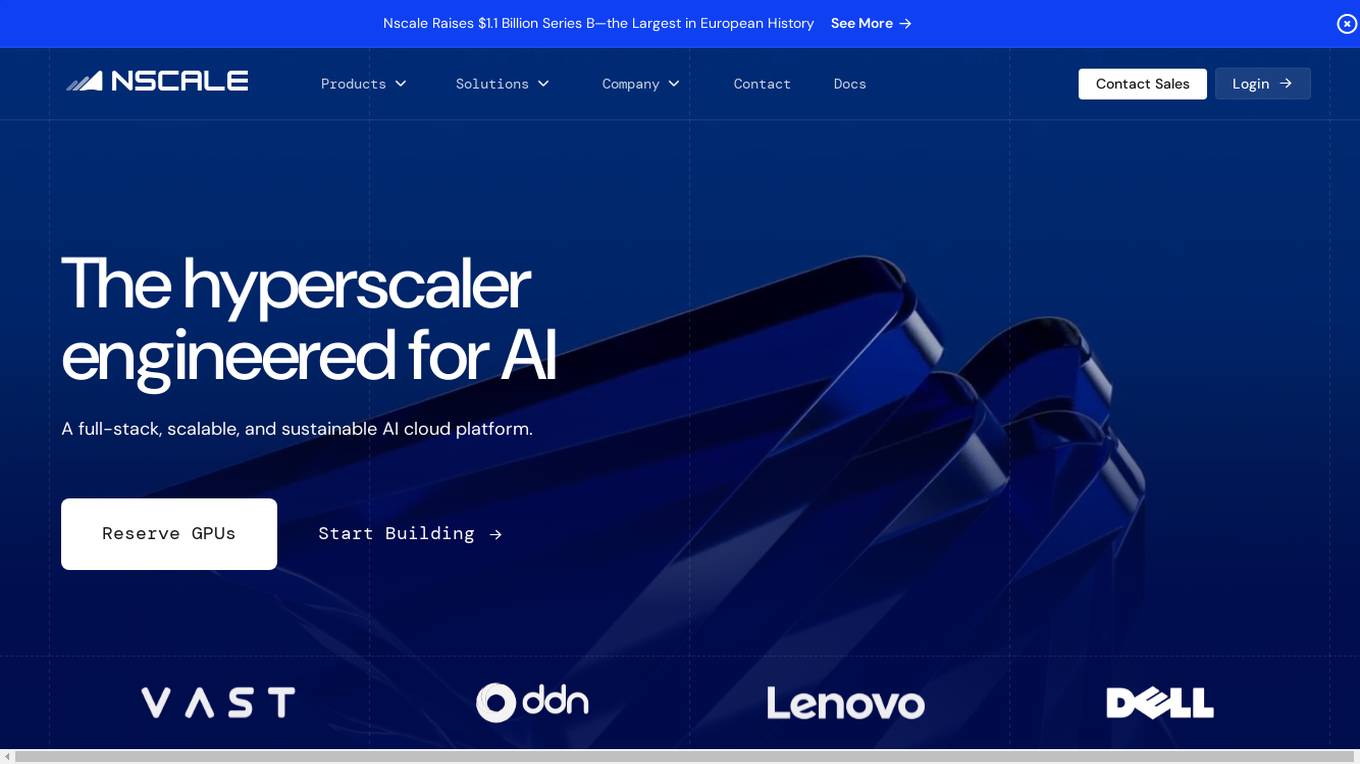
Nscale
Nscale is a full-stack, scalable, and sustainable AI cloud platform that offers a wide range of AI services and solutions. It provides services for developing, training, tuning, and deploying AI models using on-demand services. Nscale also offers serverless inference API endpoints, fine-tuning capabilities, private cloud solutions, and various GPU clusters engineered for AI. The platform aims to simplify the journey from AI model development to production, offering a marketplace for AI/ML tools and resources. Nscale's infrastructure includes data centers powered by renewable energy, high-performance GPU nodes, and optimized networking and storage solutions.
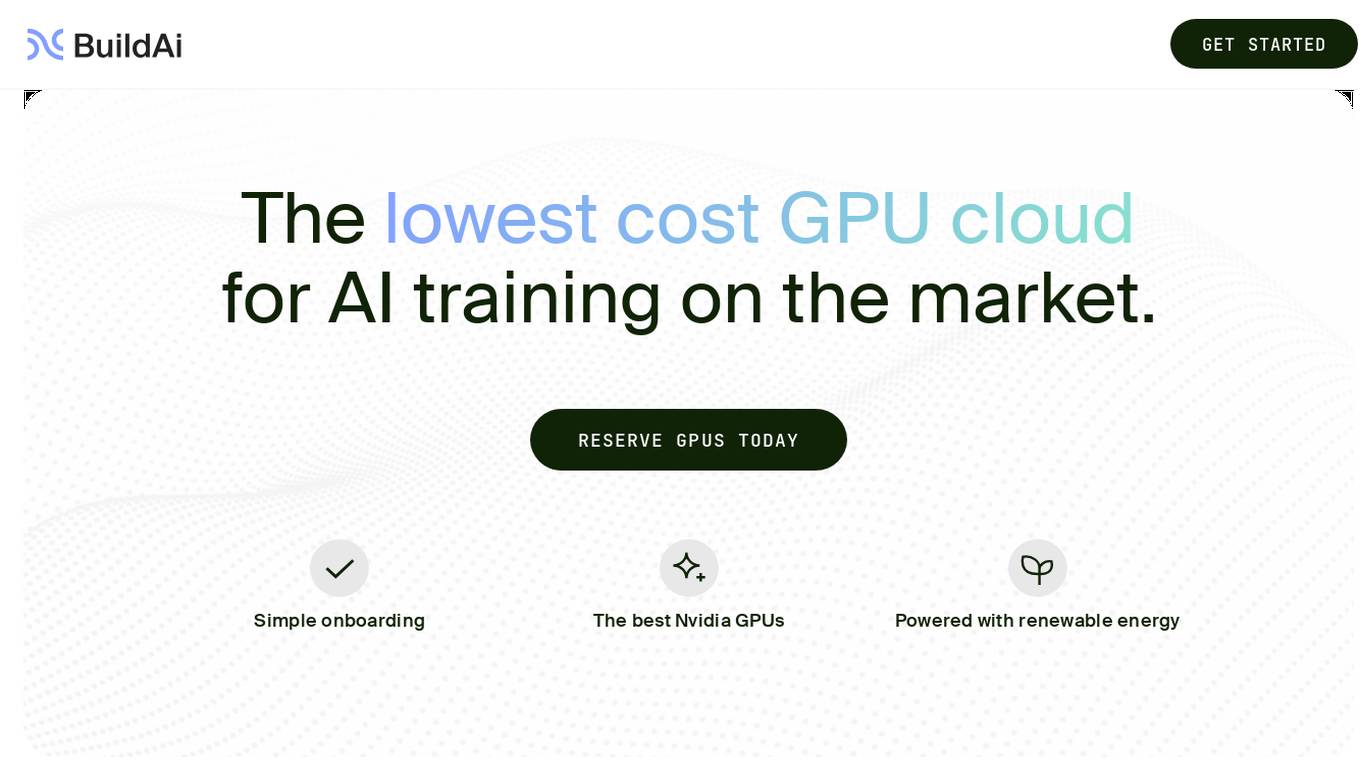
BuildAi
BuildAi is an AI tool designed to provide the lowest cost GPU cloud for AI training on the market. The platform is powered with renewable energy, enabling companies to train AI models at a significantly reduced cost. BuildAi offers interruptible pricing, short term reserved capacity, and high uptime pricing options. The application focuses on optimizing infrastructure for training and fine-tuning machine learning models, not inference, and aims to decrease the impact of computing on the planet. With features like data transfer support, SSH access, and monitoring tools, BuildAi offers a comprehensive solution for ML teams.
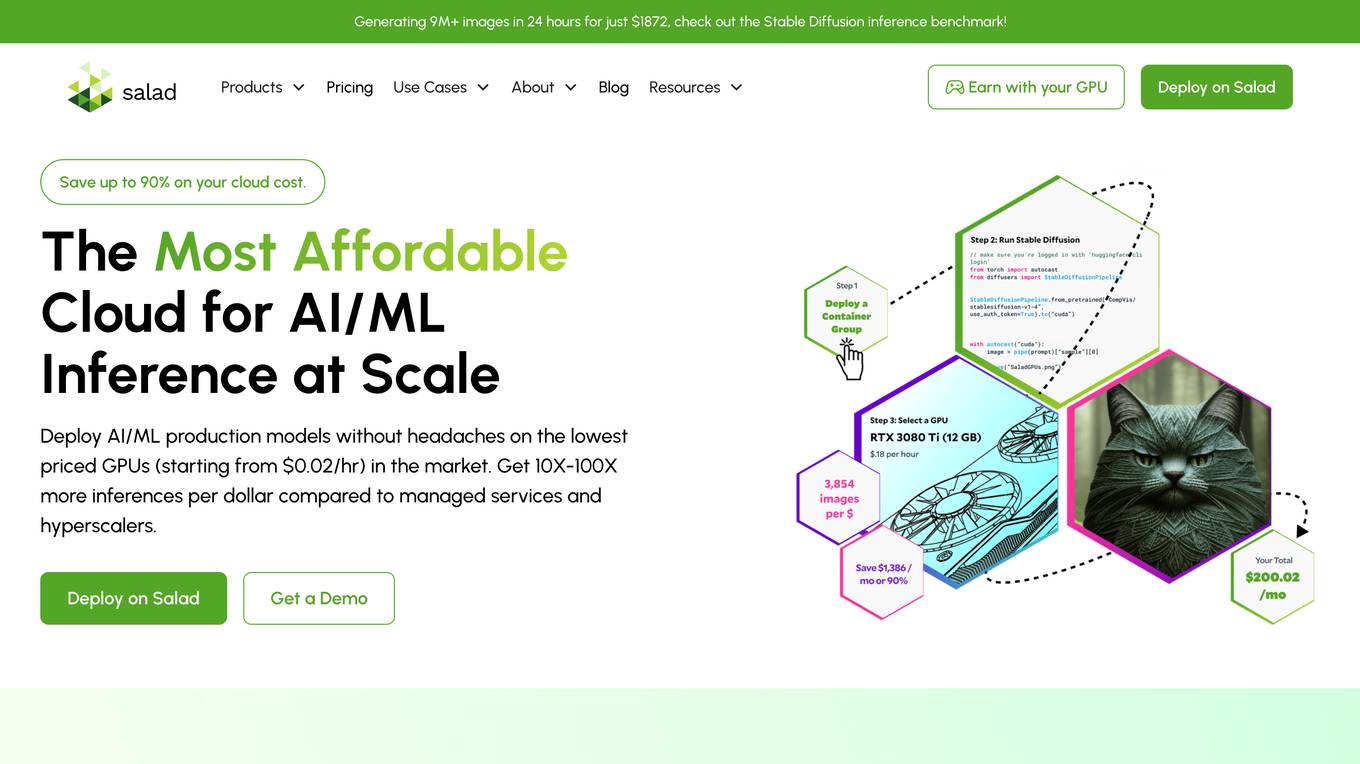
Salad
Salad is a distributed GPU cloud platform that offers fully managed and massively scalable services for AI applications. It provides the lowest priced AI transcription in the market, with features like image generation, voice AI, computer vision, data collection, and batch processing. Salad democratizes cloud computing by leveraging consumer GPUs to deliver cost-effective AI/ML inference at scale. The platform is trusted by hundreds of machine learning and data science teams for its affordability, scalability, and ease of deployment.

Modal
Modal is a high-performance cloud platform designed for developers, AI data, and ML teams. It offers a serverless environment for running generative AI models, large-scale batch jobs, job queues, and more. With Modal, users can bring their own code and leverage the platform's optimized container file system for fast cold boots and seamless autoscaling. The platform is engineered for large-scale workloads, allowing users to scale to hundreds of GPUs, pay only for what they use, and deploy functions to the cloud in seconds without the need for YAML or Dockerfiles. Modal also provides features for job scheduling, web endpoints, observability, and security compliance.
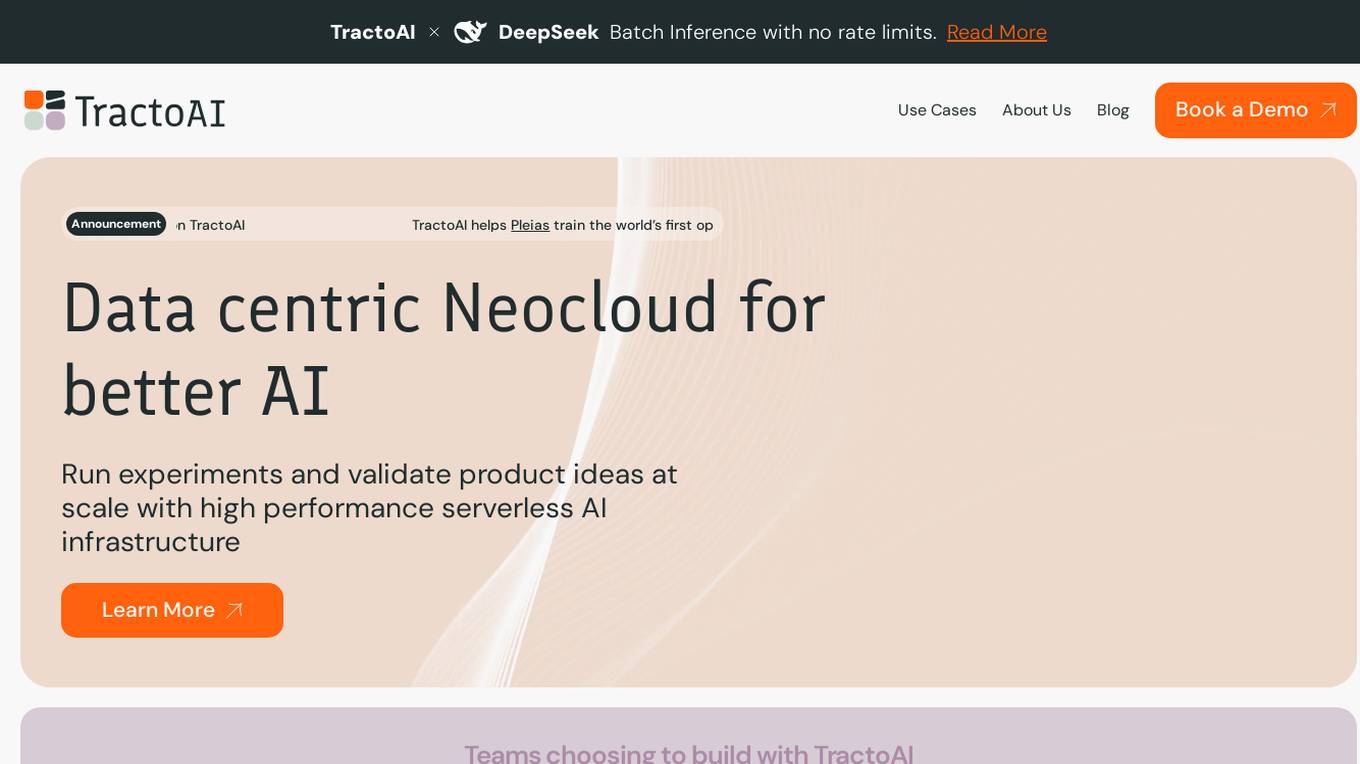
TractoAI
TractoAI is an advanced AI platform that offers deep learning solutions for various industries. It provides Batch Inference with no rate limits, DeepSeek offline inference, and helps in training open source AI models. TractoAI simplifies training infrastructure setup, accelerates workflows with GPUs, and automates deployment and scaling for tasks like ML training and big data processing. The platform supports fine-tuning models, sandboxed code execution, and building custom AI models with distributed training launcher. It is developer-friendly, scalable, and efficient, offering a solution library and expert guidance for AI projects.
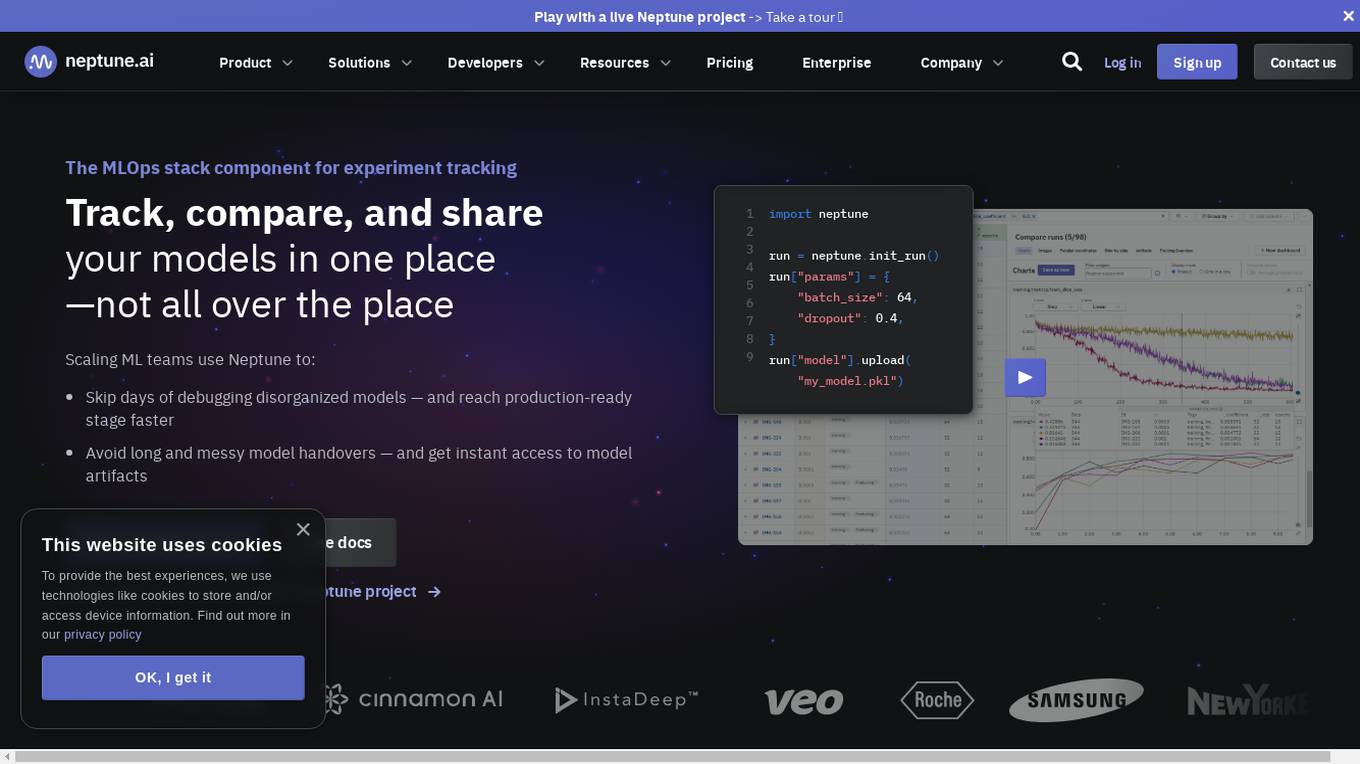
Neptune
Neptune is an MLOps stack component for experiment tracking. It allows users to track, compare, and share their models in one place. Neptune is used by scaling ML teams to skip days of debugging disorganized models, avoid long and messy model handovers, and start logging for free.

Evidently AI
Evidently AI is an open-source machine learning (ML) monitoring and observability platform that helps data scientists and ML engineers evaluate, test, and monitor ML models from validation to production. It provides a centralized hub for ML in production, including data quality monitoring, data drift monitoring, ML model performance monitoring, and NLP and LLM monitoring. Evidently AI's features include customizable reports, structured checks for data and models, and a Python library for ML monitoring. It is designed to be easy to use, with a simple setup process and a user-friendly interface. Evidently AI is used by over 2,500 data scientists and ML engineers worldwide, and it has been featured in publications such as Forbes, VentureBeat, and TechCrunch.
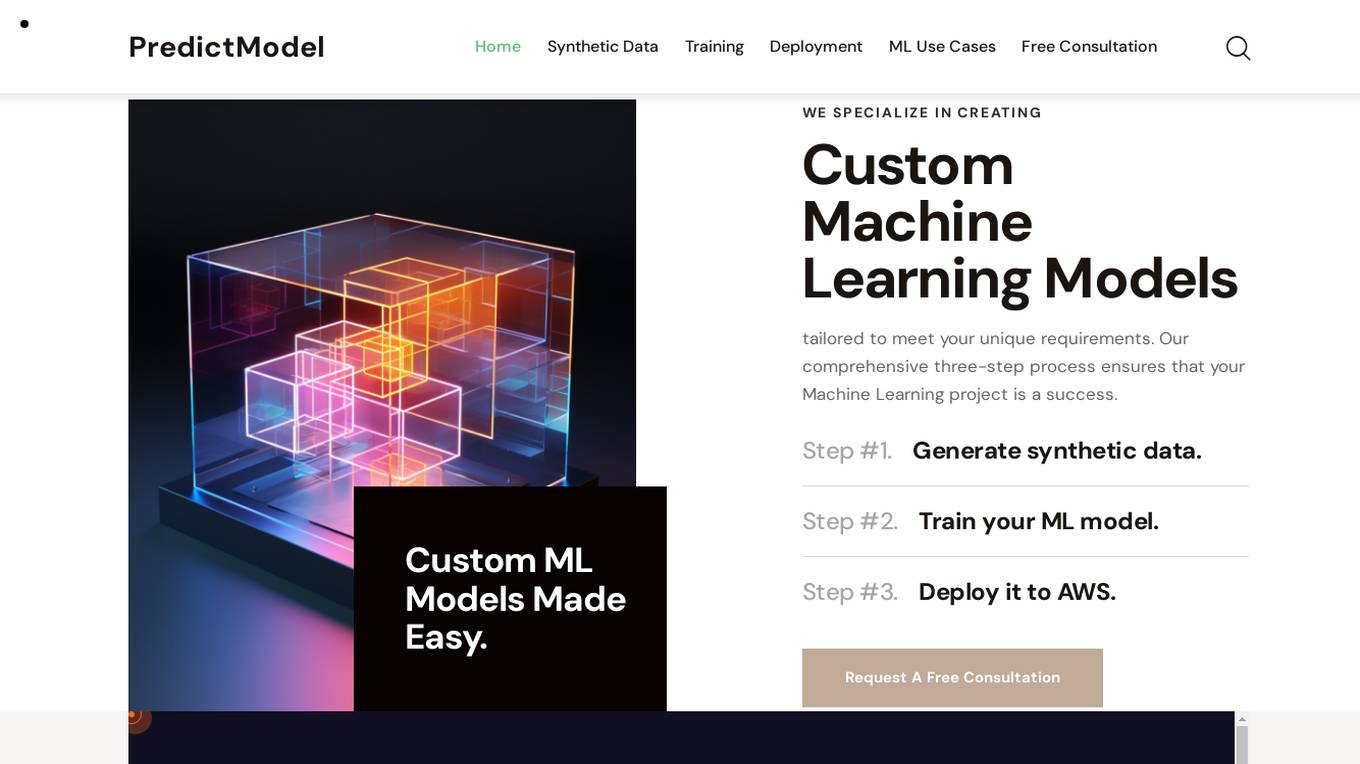
PredictModel
PredictModel is an AI tool that specializes in creating custom Machine Learning models tailored to meet unique requirements. The platform offers a comprehensive three-step process, including generating synthetic data, training ML models, and deploying them to AWS. PredictModel helps businesses streamline processes, improve customer segmentation, enhance client interaction, and boost overall business performance. The tool maximizes accuracy through customized synthetic data generation and saves time and money by providing expert ML engineers. With a focus on automated lead prioritization, fraud detection, cost optimization, and planning, PredictModel aims to stay ahead of the curve in the ML industry.
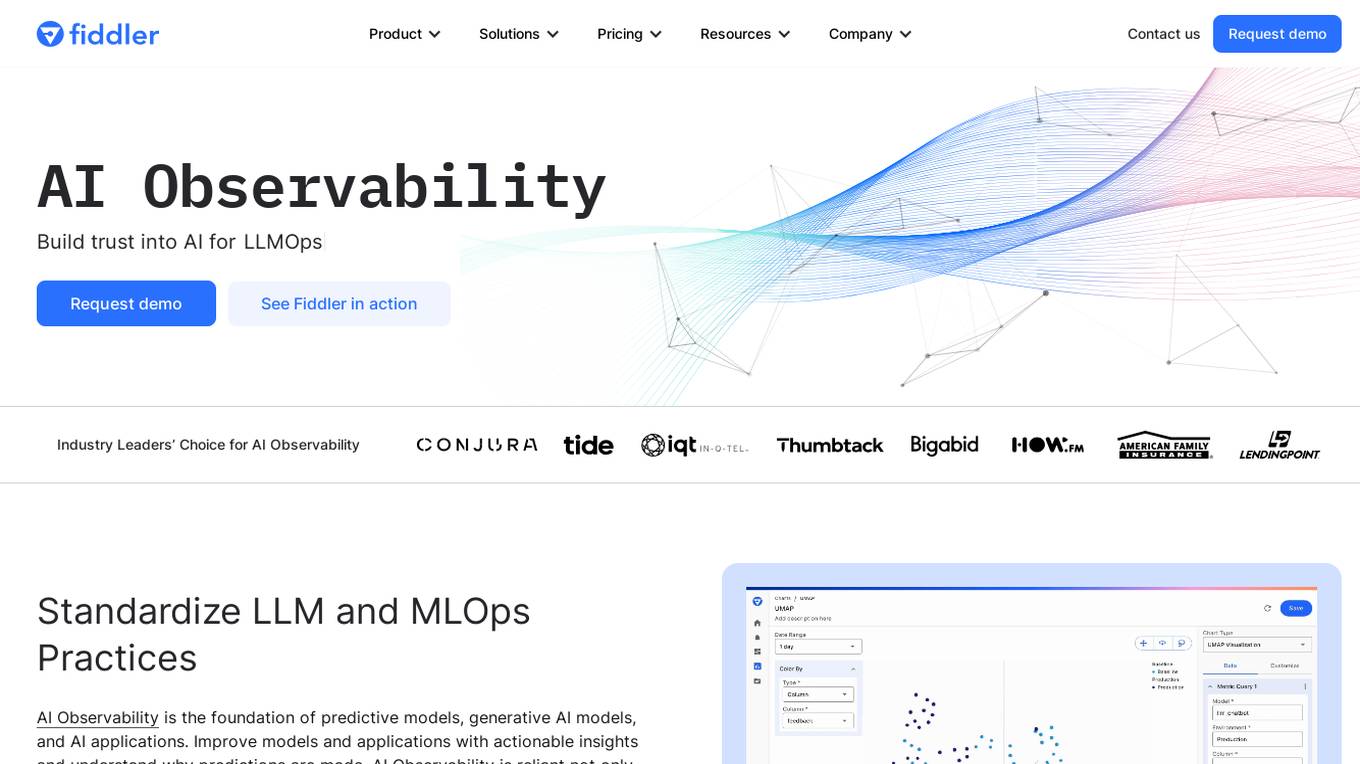
Fiddler AI
Fiddler AI is an AI Observability platform that provides tools for monitoring, explaining, and improving the performance of AI models. It offers a range of capabilities, including explainable AI, NLP and CV model monitoring, LLMOps, and security features. Fiddler AI helps businesses to build and deploy high-performing AI solutions at scale.

Protect AI
Protect AI is a comprehensive platform designed to secure AI systems by providing visibility and manageability to detect and mitigate unique AI security threats. The platform empowers organizations to embrace a security-first approach to AI, offering solutions for AI Security Posture Management, ML model security enforcement, AI/ML supply chain vulnerability database, LLM security monitoring, and observability. Protect AI aims to safeguard AI applications and ML systems from potential vulnerabilities, enabling users to build, adopt, and deploy AI models confidently and at scale.
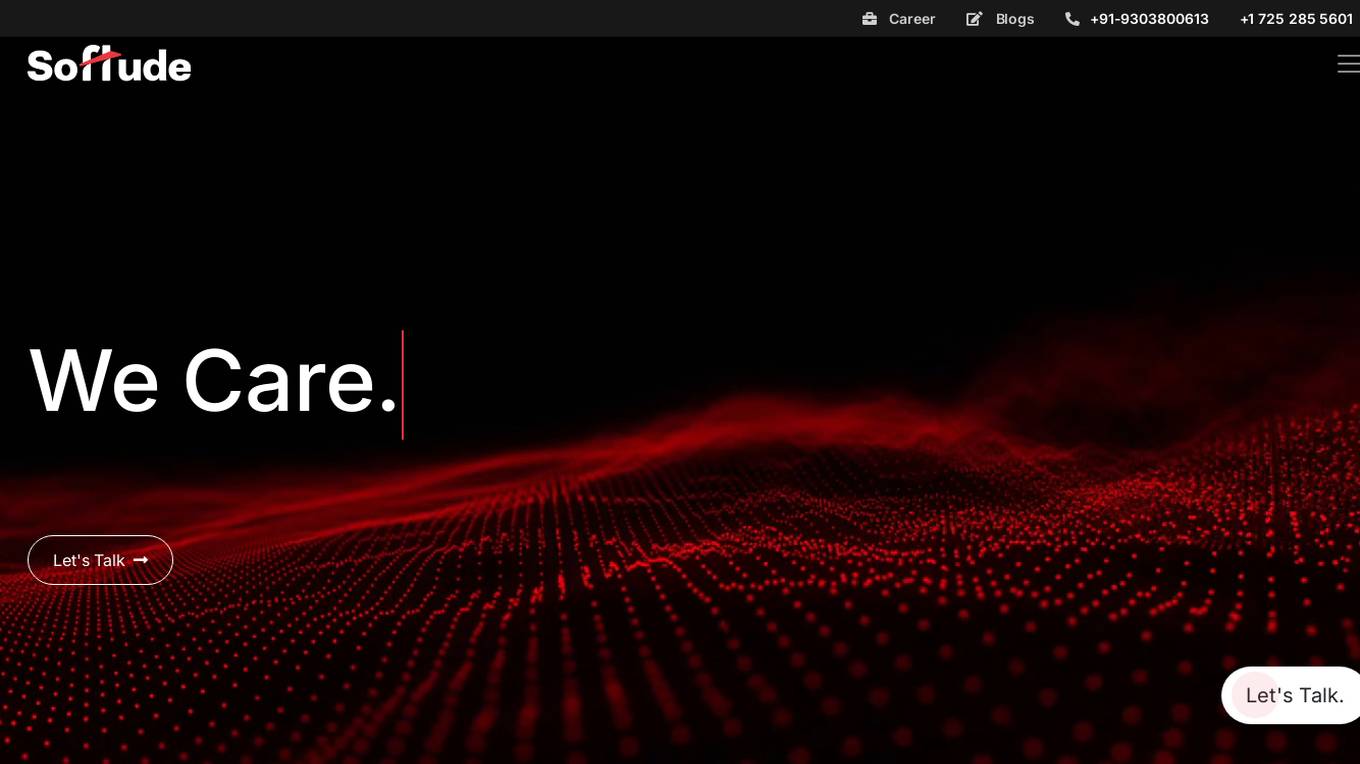
Softude
Softude is a software product development and solutions company that offers AI and GenAI services and products. They provide services such as AI agent development, AI chatbot development, AI consulting, Generative AI development, ML model engineering, and more. Softude focuses on innovation, client-centric development, and care for both clients and team members. They have a strong emphasis on building lasting relationships and delivering impactful solutions. The company serves various industries including automotive, banking, healthcare, and transportation, among others.
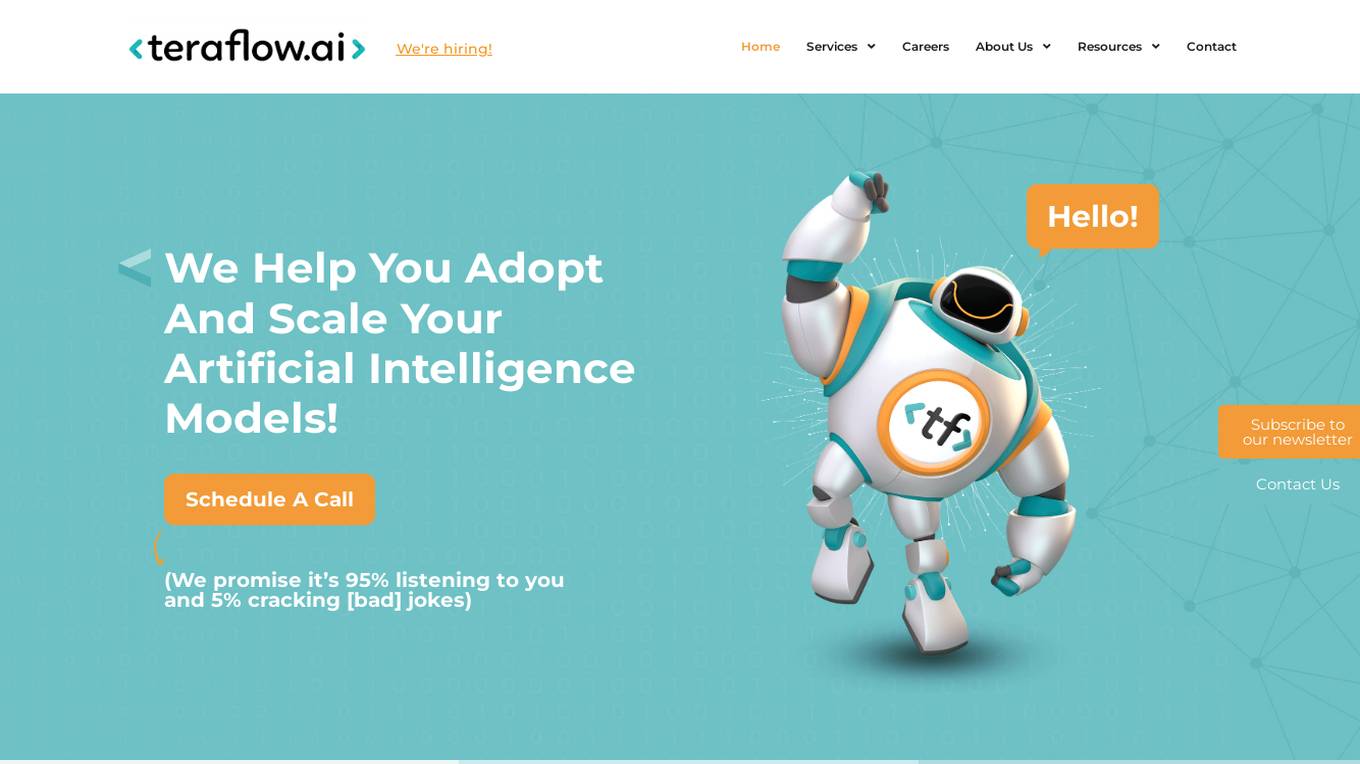
Teraflow.ai
Teraflow.ai is an AI-enablement company that specializes in helping businesses adopt and scale their artificial intelligence models. They offer services in data engineering, ML engineering, AI/UX, and cloud architecture. Teraflow.ai assists clients in fixing data issues, boosting ML model performance, and integrating AI into legacy customer journeys. Their team of experts deploys solutions quickly and efficiently, using modern practices and hyper scaler technology. The company focuses on making AI work by providing fixed pricing solutions, building team capabilities, and utilizing agile-scrum structures for innovation. Teraflow.ai also offers certifications in GCP and AWS, and partners with leading tech companies like HashiCorp, AWS, and Microsoft Azure.
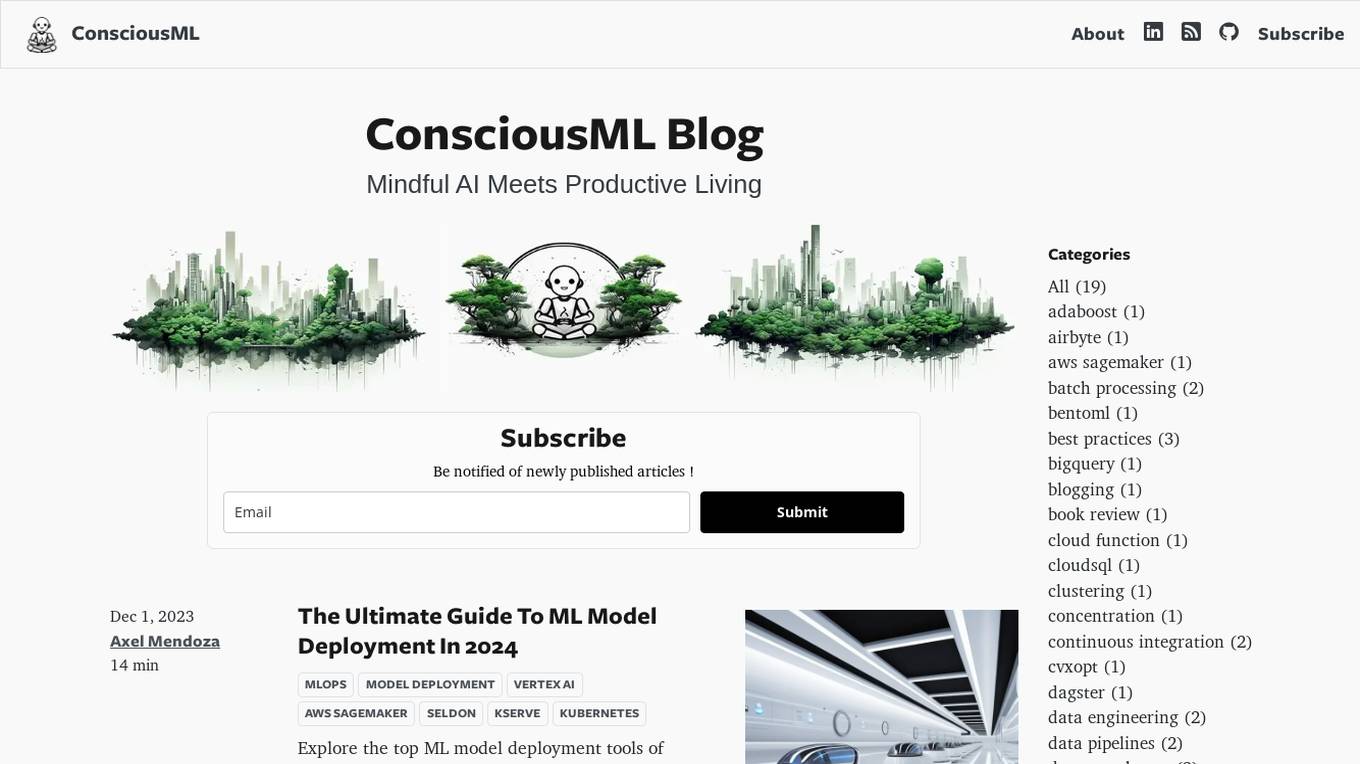
ConsciousML
ConsciousML is a blog that provides in-depth and beginner-friendly content on machine learning, data engineering, and productivity. The blog covers a wide range of topics, including ML model deployment, data pipelines, deep work, data engineering, and more. The articles are written by experts in the field and are designed to help readers learn about the latest trends and best practices in machine learning and data engineering.

Arrival
Arrival is a cutting-edge software solution that allows users to design 3D virtual spaces with AI assistance and drag-and-drop functionality. It enables effortless creation of immersive environments by utilizing a built-in text-to-3D ML model, a user-friendly drag & drop interface, and seamless integration with leading virtual worlds and video gaming marketplaces.
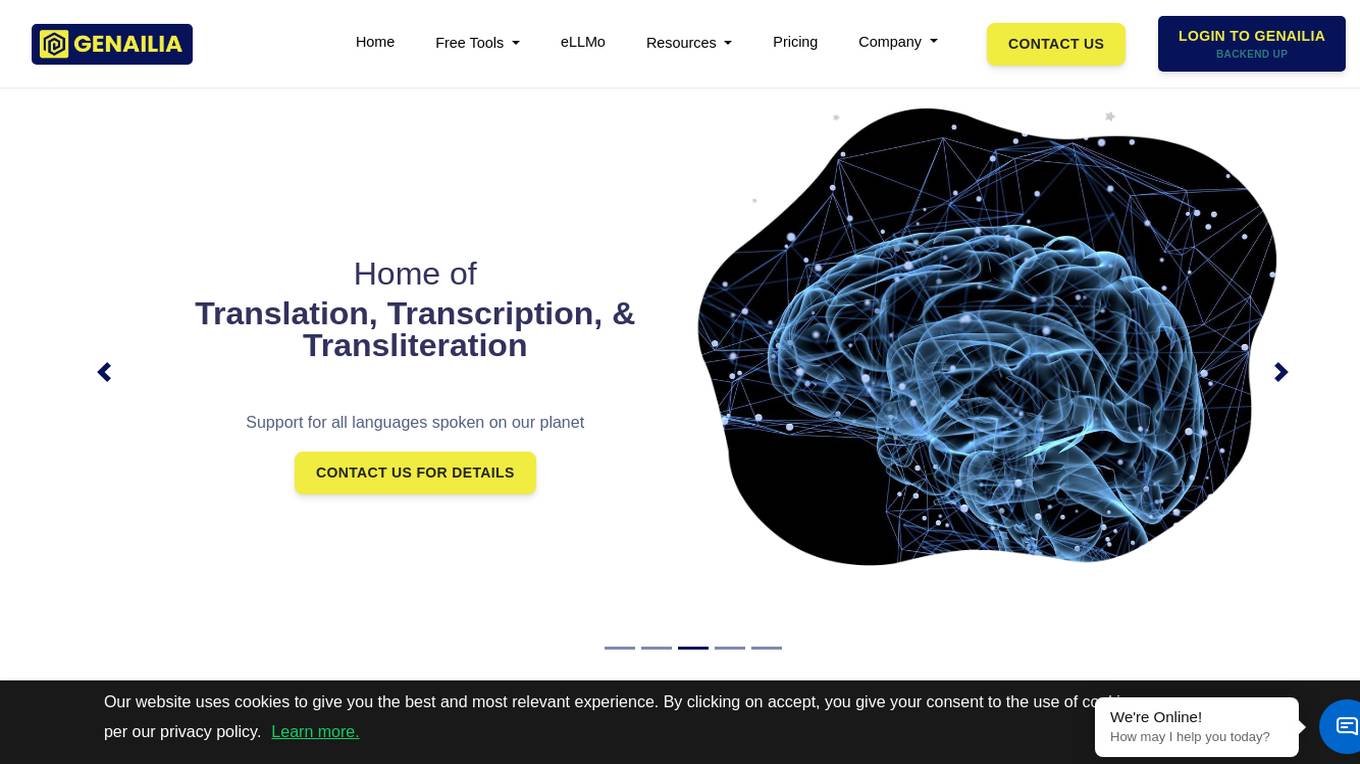
Genailia
Genailia is an AI platform that offers a range of products and services such as translation, transcription, chatbot, LLM, GPT, TTS, ASR, and social media insights. It harnesses AI to redefine possibilities by providing generative AI, linguistic interfaces, accelerators, and more in a single platform. The platform aims to streamline various tasks through AI technology, making it a valuable tool for businesses and individuals seeking efficient solutions.
1 - Open Source AI Tools
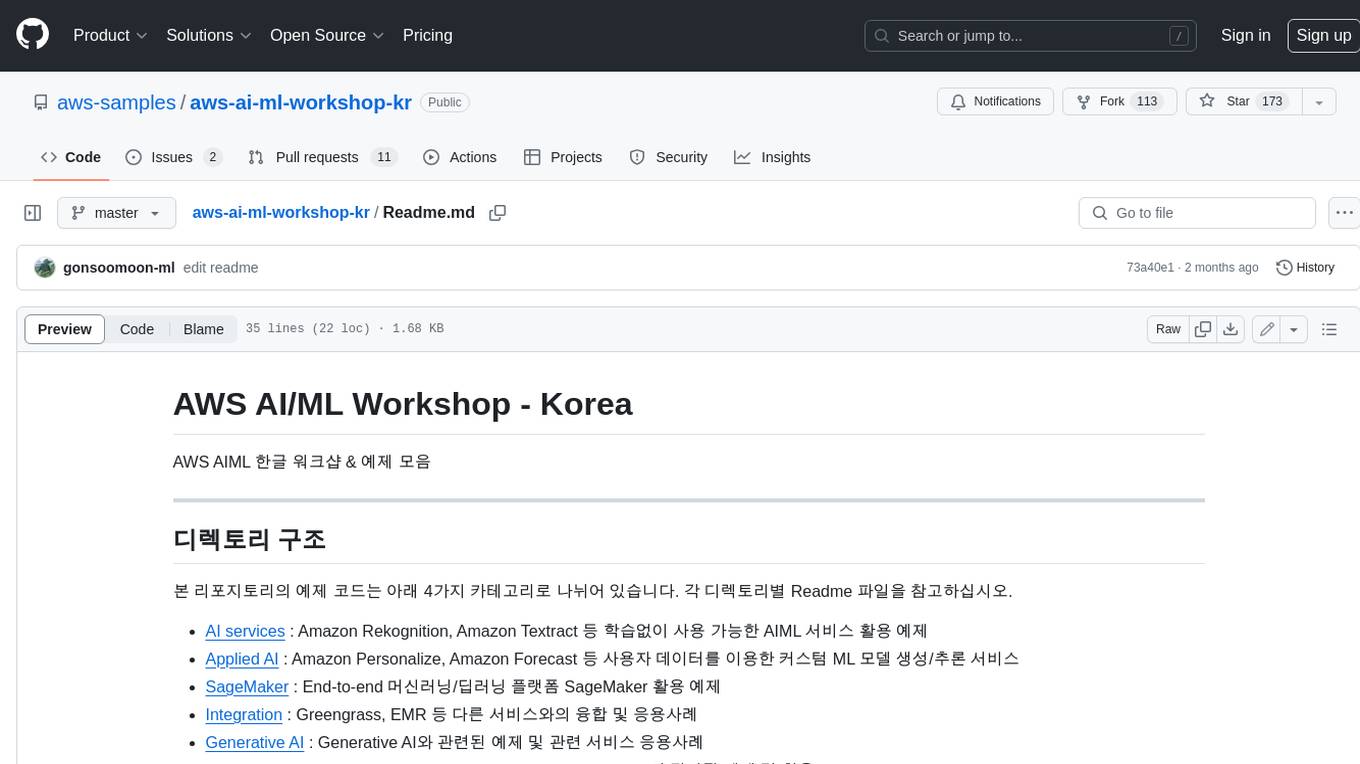
aws-ai-ml-workshop-kr
AWS AI/ML Workshop & example collection in Korean. The example codes in this repository are divided into 4 categories: AI services, Applied AI, SageMaker, Integration, Generative AI, and AWS Neuron. Each directory has its own Readme file. This repository also provides useful information for self-studying SageMaker.
20 - OpenAI Gpts
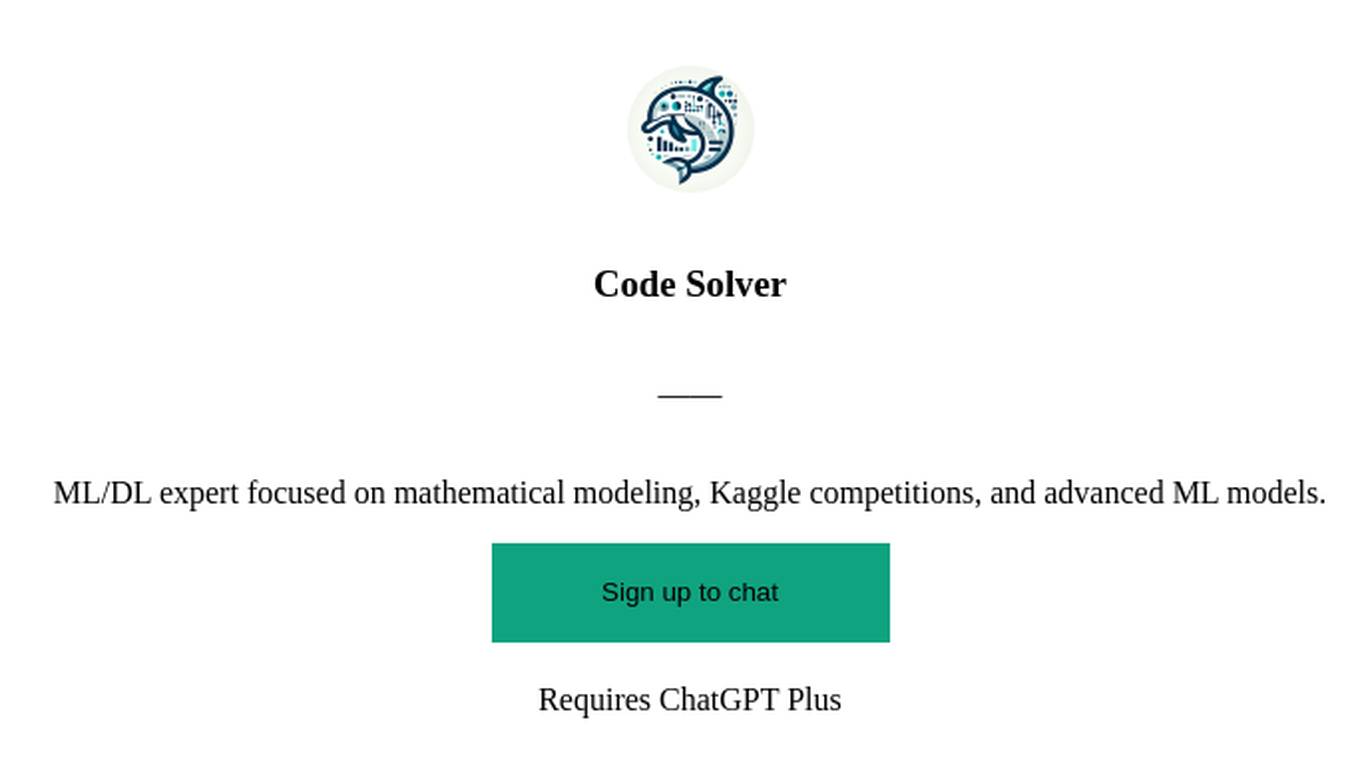
Code Solver
ML/DL expert focused on mathematical modeling, Kaggle competitions, and advanced ML models.
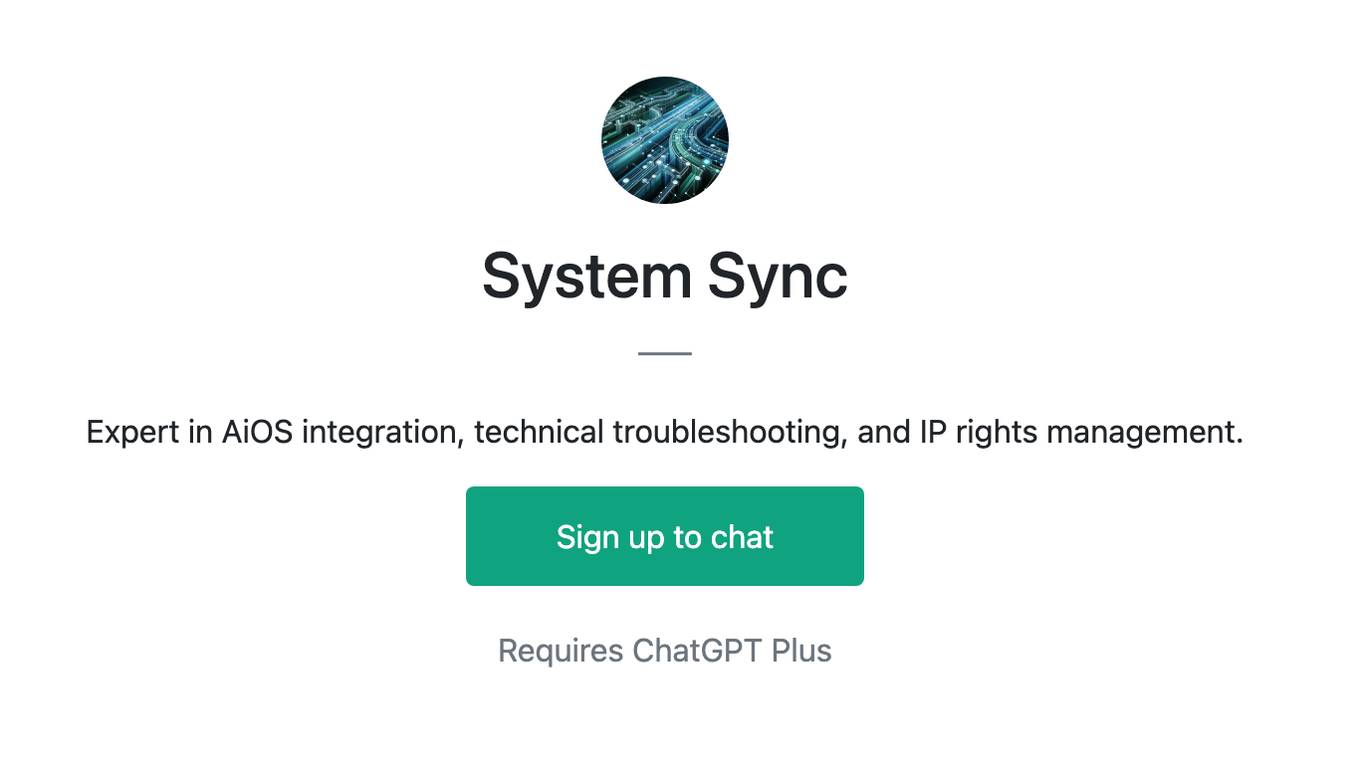
System Sync
Expert in AiOS integration, technical troubleshooting, and IP rights management.
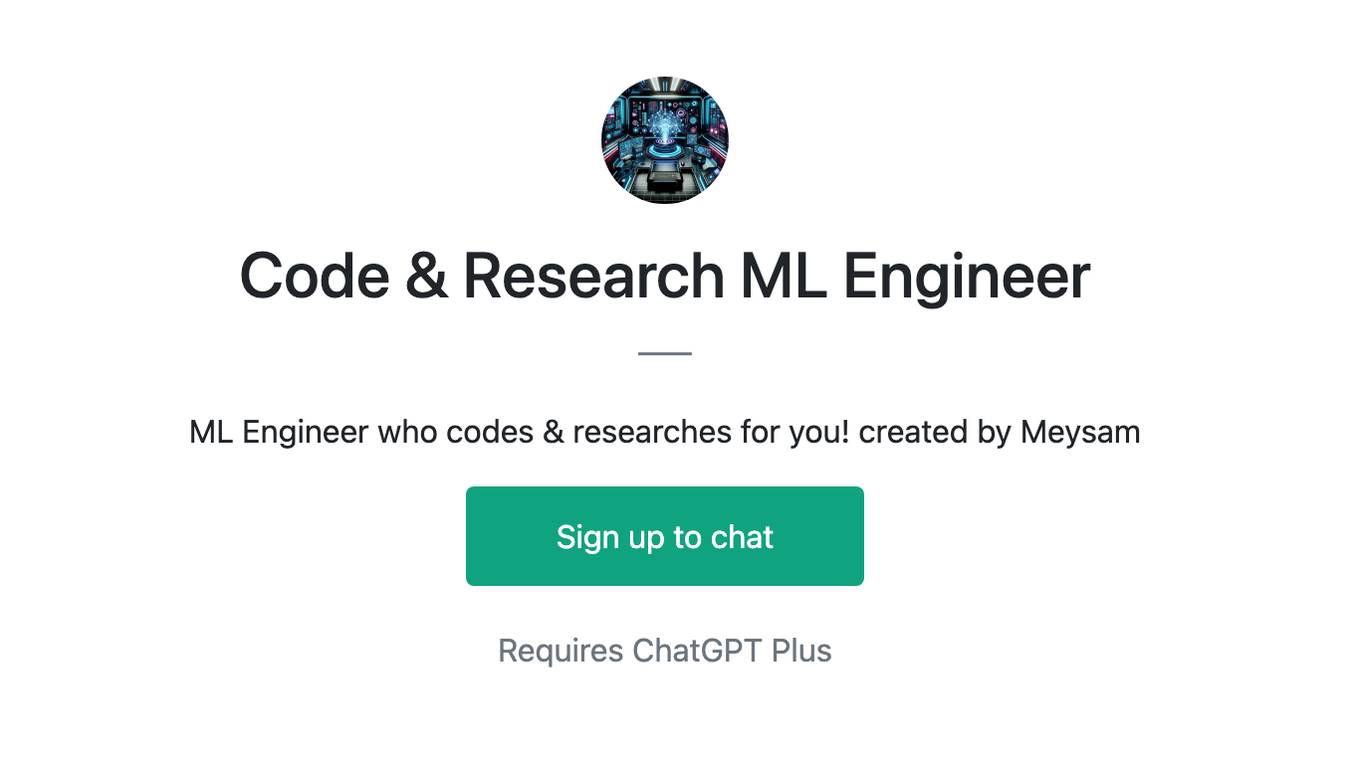
Code & Research ML Engineer
ML Engineer who codes & researches for you! created by Meysam
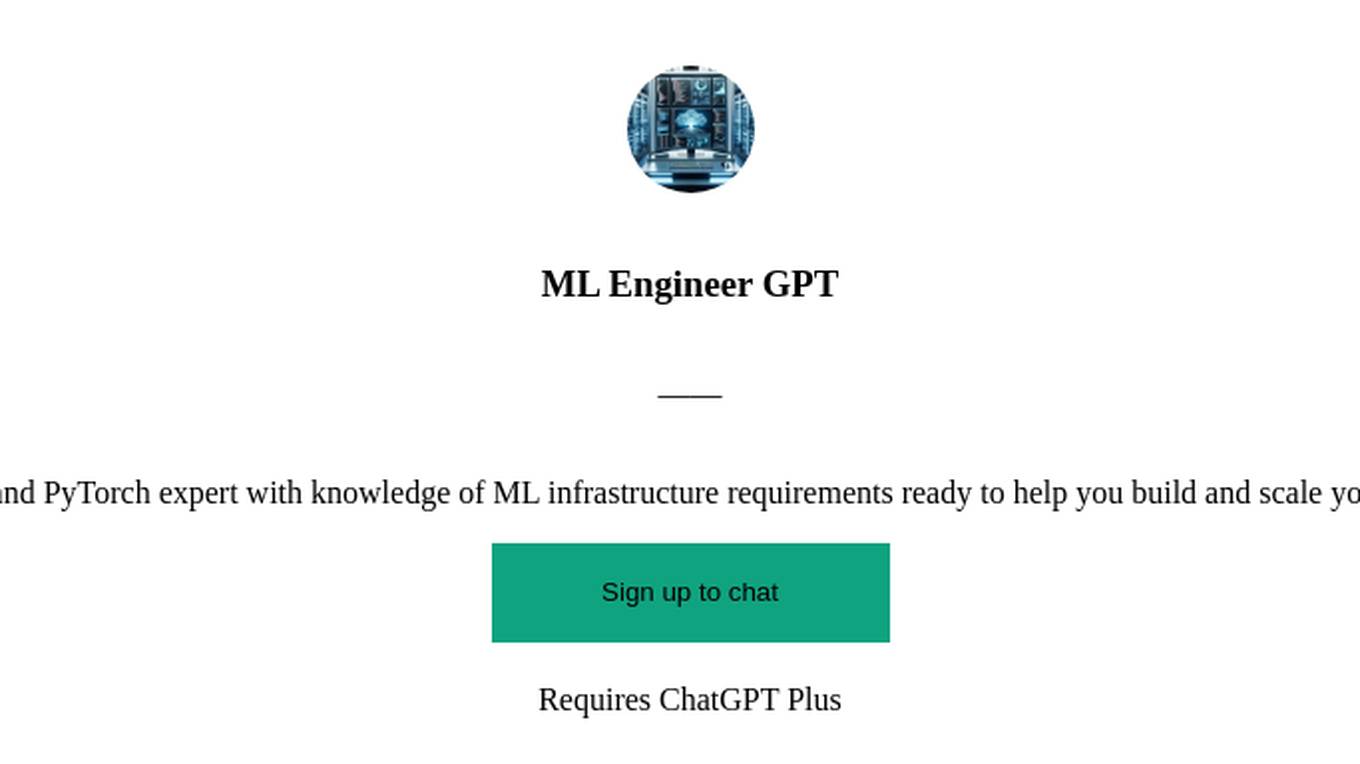
ML Engineer GPT
I'm a Python and PyTorch expert with knowledge of ML infrastructure requirements ready to help you build and scale your ML projects.

Instructor GCP ML
Formador para la certificación de ML Engineer en GCP, con respuestas y explicaciones detalladas.
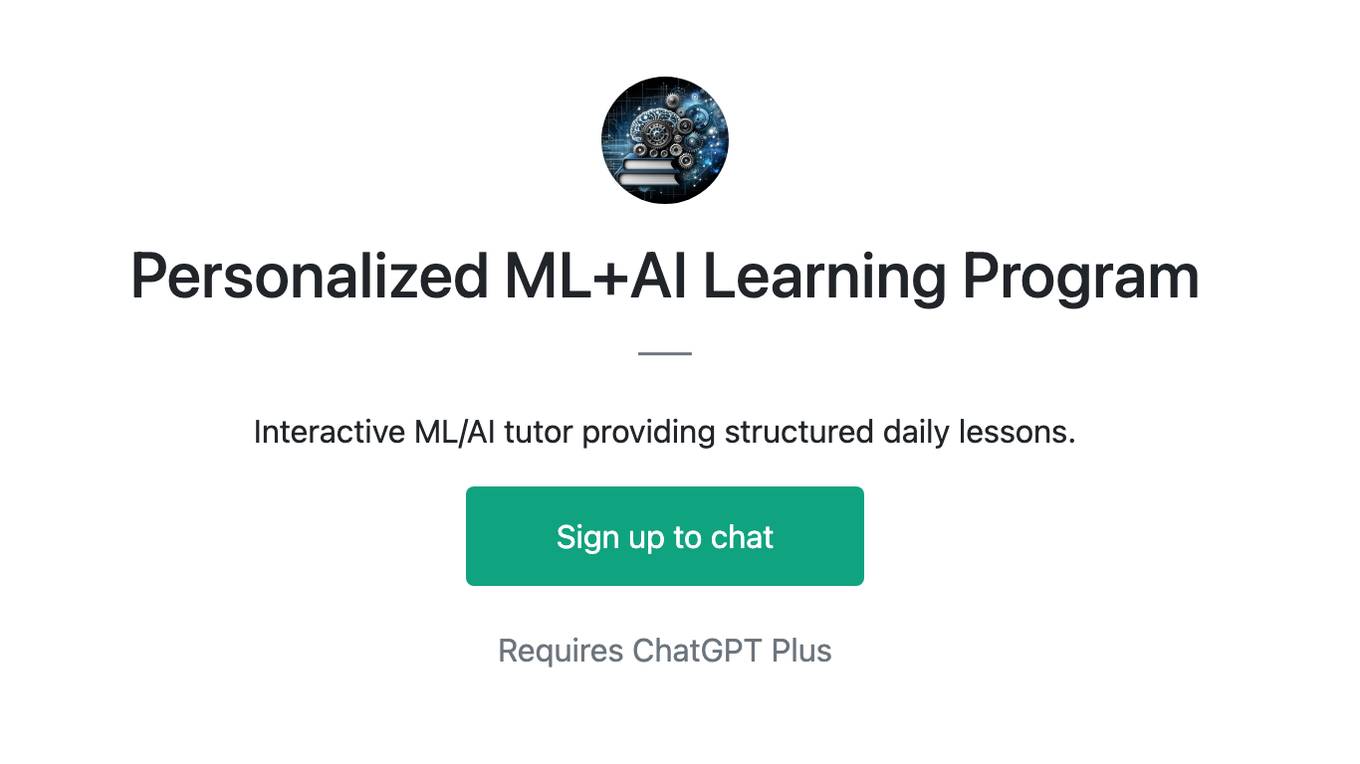
Personalized ML+AI Learning Program
Interactive ML/AI tutor providing structured daily lessons.
Dascimal
Explains ML and data science concepts clearly, catering to various expertise levels.
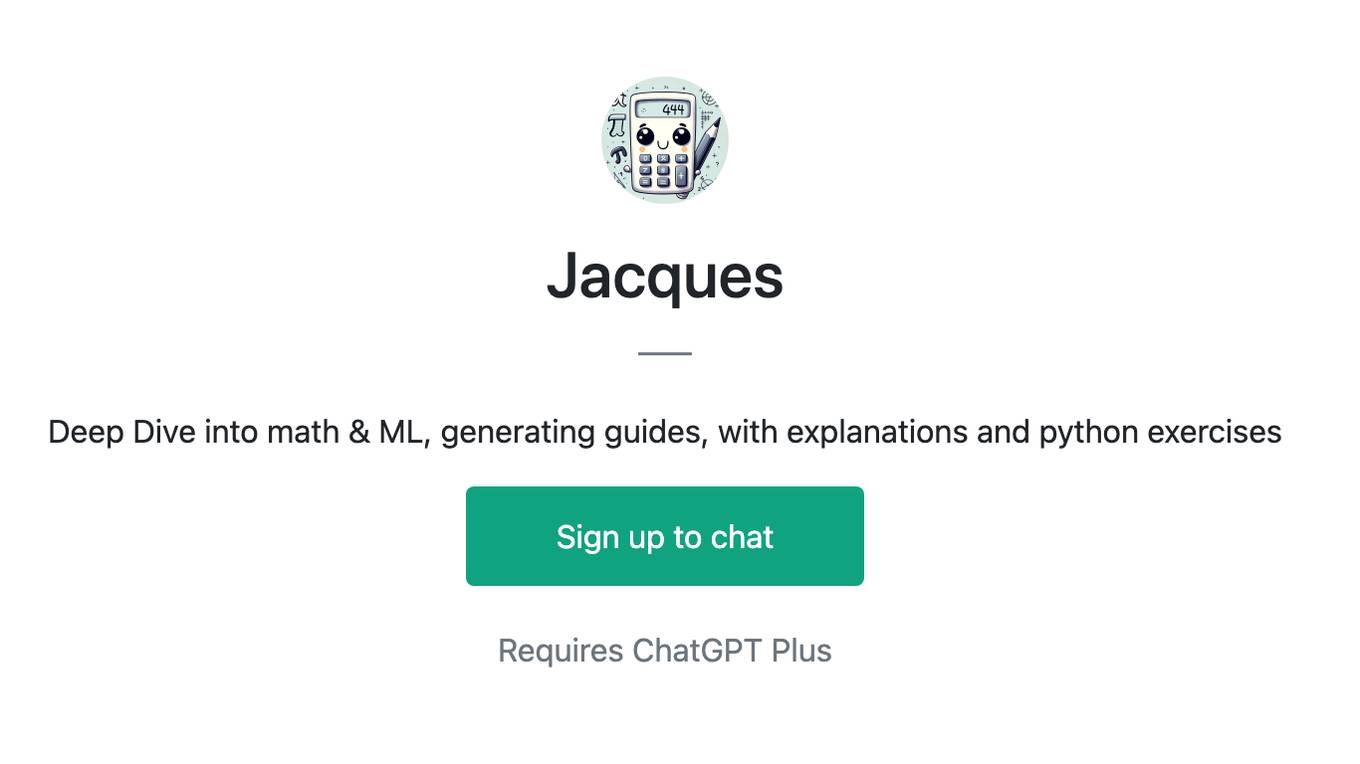
Jacques
Deep Dive into math & ML, generating guides, with explanations and python exercises
